Windows keeps a tab on the Windows Defender’s activities. For instance, every time Defender removes an app or stops a service/process from running, the activities are logged inside Windows Protection History.
Ronald.phillips
Shared posts
How to Use DefenderUI to Repair the Windows Protection History
Guy Ritchie's The Gentlemen Is Becoming A Netflix TV Series, Theo James To Star
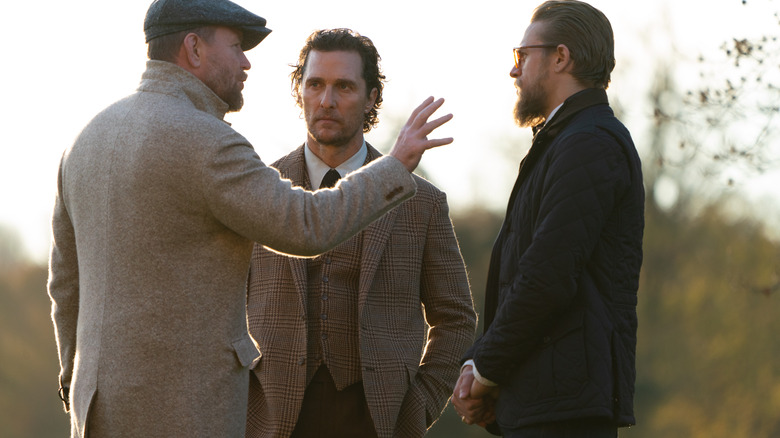
Netflix is officially entering the Guy Ritchie business.
Over two years after the "Snatch," "Sherlock Holmes," and "Aladdin" filmmaker first released his long-overdue foray back to caper flicks with "The Gentlemen" (/Film's Hoai-Tran Bui reviewed the film here, calling it "a film about Ritchie flexing his muscles and standing on his lawn to yell at the new kids for daring to tread on it"), the divisive director is taking the gangster dramedy and turning it into a streaming series for the biggest platform of them all. The news comes courtesy of Variety, which confirms previous reports that Netflix had been "in talks" to pick up the series. Today, it's been revealed that the streaming giant has now given this spin-off the green light and ordered it to series.
While fans of the irreverent crime film have waited with bated breath to see if any of the film's original stars would return -- a star-studded cast that includes Matthew McConaughey, Charlie Hunnam, Jeremy Strong, Michelle Dockery, Colin Farrell, Henry Golding, and Eddie Marsan -- we now know that the new lead for this series will have a connection to one of those original characters, at least. Variety also indicates that actor Theo James has joined the Netflix series as the main protagonist Eddie Halstead, who is the son of McConaughey's American drug lord Mickey Pearson and described as someone "who inherits his father's estate only to discover it is part of Pearson's empire."
Netflix Moves Forward With The Gentlemen
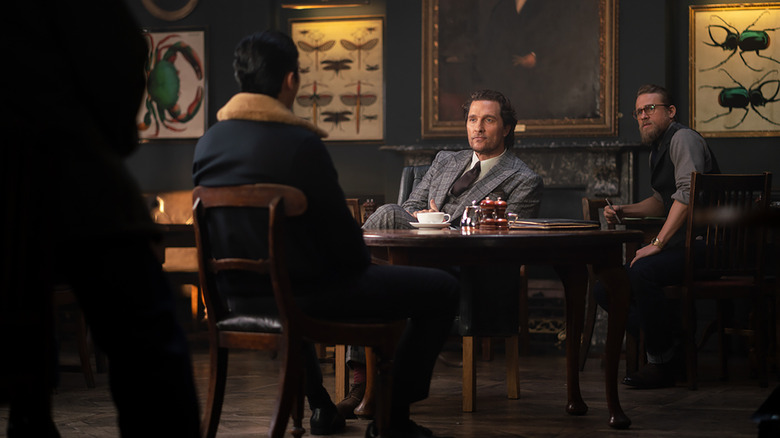
After writing and directing "The Gentlemen" to commendable box office success, Guy Ritchie will return as a writer (he co-wrote the pilot alongside Matthew Read), director of the first two episodes, and executive producer on the Netflix series that will continue the story of the film. It'll be a happy reunion of sorts behind the scenes, as Bill Block, Ivan Atkinson, and Marn Davies will all return to the series as executive producers after serving as producers on the 2019 film (Marn and Davies also received "story by" credits on the screenplay).
As for the Netflix series, newcomer Theo James is known for starring in HBO's "The Time Traveler's Wife," season 2 of "The White Lotus" as Cameron Sullivan, and also roles in the "Underworld" and "Divergent" movies, the latter of which he played the character of Tobias "Four" Eaton. His casting as the main protagonist of the story doesn't preclude even more direct connections or possibly even cameo appearances from others in the original cast, of course, though it remains to be seen whether Ritchie will be able to (or even feel inclined to) lure such big-name actors to Netflix. At the very least, his casting as the son of McConaughey's original character would seem to answer the question of whether this series would be a direct continuation, a loosely connection spin-off, or some other story set in the same world as "The Gentlemen."
Stay tuned to /Film for more updates as they come in.
Read this next: The Best Movies Streaming Right Now: Malignant, A Hero, And More
The post Guy Ritchie's The Gentlemen is Becoming a Netflix TV Series, Theo James to Star appeared first on /Film.
The Wait is Almost Over: AMD Announces New GPUs Today
After much speculation and anticipation, we are about to learn about AMD's RDNA 3 graphics cards. The announcement will be streamed on AMD's YouTube channel, beginning at 4:00 PM Eastern. Don't…
A Surface-by-Surface Guide to Getting Scratches Out of Practically Everything

As frustrating as they are when you first spot them, not all scratches are permanent damage on your prized home surfaces. With a little effort, some scratches can be seamlessly covered or removed—it all depends on the type of material that sustained the damage.
Bored With Your Healthy Meal Rotation? These 5 Apps Will Inspire You With Fresh Recipes
Need some inspiration in the kitchen? These apps focused on healthy recipes and simple meal planning will invigorate your cooking routine. Whether you’re looking to eat what’s in season, get more vegetables in your meals, or expand your culinary horizons, these apps will make it easy to answer the eternal question: What’s for dinner?
Soft & Quiet – Movie Review (5/5)
The post Soft & Quiet – Movie Review (5/5) appeared first on Heaven of Horror.
US jet whips it out for Putin the pud, draws 'sky penis' over Russian base in the Mediterranean (possible nsfw content on page) [Amusing]
Review: SATAN'S SLAVES: COMMUNION, The Silver Lining Is...
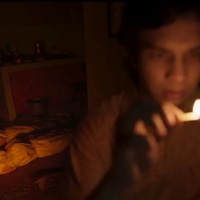 Jakarta, Indonesia. 1985. Years after the terrible events of the first film, we catch up with the remaining members of the Suwono family. Rini, her younger siblings, Toni and Bondi, and their Father, Bahri, now live in an apartment building built on the outskirts of town. They share a cramped one-bedroom apartment in what is essentially government housing. Rini is set on leaving and going to a university in another city. Toni pines for the new girl Tani, who recently moved into the building. Bondi hangs out with his friends around the building, digging up trouble. And dad leaves for work every day but his children don't know what he does; he locks his briefcase in an armoire as soon as he returns...
Jakarta, Indonesia. 1985. Years after the terrible events of the first film, we catch up with the remaining members of the Suwono family. Rini, her younger siblings, Toni and Bondi, and their Father, Bahri, now live in an apartment building built on the outskirts of town. They share a cramped one-bedroom apartment in what is essentially government housing. Rini is set on leaving and going to a university in another city. Toni pines for the new girl Tani, who recently moved into the building. Bondi hangs out with his friends around the building, digging up trouble. And dad leaves for work every day but his children don't know what he does; he locks his briefcase in an armoire as soon as he returns...
Free Game on Steam and GOG: Phoning Home
Phoning Home is a sci fi survival game and it's now permanently available for free. Get a free Steam key or a free DRM-free download, your choice!
The post Free Game on Steam and GOG: Phoning Home appeared first on Indie Game Bundles.
‘Symbiogenesis’ is some NFT garbage from Square Enix, not a ‘Parasite Eve’ revival
Square Enix has revealed that Symbiogenesis, an upcoming project that was widely rumored to be Parasite Eve-related, is actually something else — and it's centered around NFTs (non-fungible tokens). The publisher described Symbiogenesis as "its first digital collectible art project designed from the ground up for Web3 fans."
Symbiogenesis takes place in a self-contained world containing a large cast of characters that can be collected as NFTs. Square Enix says you'll be able to use these digital artworks as profile pictures on social media accounts, something you definitely wouldn't be able to do by simply taking a screenshot.
NFT Collectible Art Project
— SYMBIOGENESIS (@symbiogenesisPR) November 3, 2022
SYMBIOGENESIS
Untangle the Story
Spring 2023#SYMBIOGENESIS#symgeNFT#NFT#NFTProjectspic.twitter.com/Kk1JvMdQx4
In addition, you can use your character "in a story that takes place in an alternate world where the player can ’untangle’ a mystery by completing missions that revolve around questions of the monopolization and distribution of resources," Square Enix said in a press release. That's somewhat ironic, given that the entire perceived value of NFTs is derived from artificial scarcity.
The publisher will start selling NFTs (which will likely be on the Ethereum blockchain) in spring 2023, alongside the debut of "a free browser service" on Google Chrome. The browser-based approach makes some sense. Symbiogenesis wouldn't make it onto Steam, which banned NFT games last year.
This is one of the highest-profile stabs at an NFT-driven gaming experience yet. However, the NFT market has cratered this year. Gamers have largely rejected NFTs too.
Last December, it emerged that Ubisoft had sold barely any NFTs in Ghost Recon Breakpoint, the first title in which it employed blockchain tech. A few weeks later, an Ubisoft executive claimed players would benefit from having a marketplace where they could buy and sell NFTs of in-game items, "but they don't get it for now." In April, Ubisoft announced that the game wouldn't receive any more content updates, effectively putting the game on ice and diminishing whatever value Ghost Recon Breakpoint's NFTs had.
It seems Square Enix is facing an uphill battle to make Symbiogenesis a success. It's not a surprise that the company is moving in this direction after announcing in January that it would invest in blockchain games. Square Enix sold off some of its more notable Western studios this year and it initially planned to plow much of the proceeds into the blockchain and other tech before walking back on that plan.
Meanwhile, Square Enix may have to try to placate fans who were convinced that Symbiogenesis was actually a revival of 1998's Parasite Eve. After the publisher registered Symbiogenesis as a trademark last month, some pointed out that the term means “the merging of two separate organisms to form a single new organism" — which is one of the foundations of Parasite Eve's story. While that connection is somewhat tenuous, it's hard to blame fans for beingupset and disappointed that the project is ultimately an NFT grift.
Chris Farley's Dramatic Ambitions For Black Sheep Came At The Expense Of David Spade
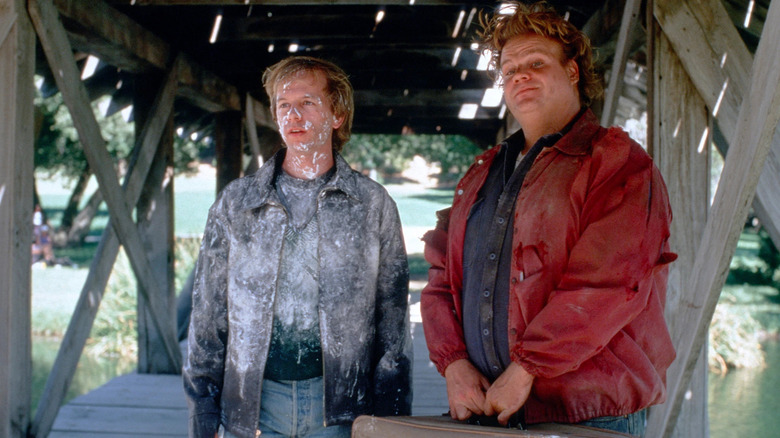
Penelope Spheeris' 1996 comedy film "Black Sheep" was the second film to feature David Spade and Chris Farley playing opposite each other as a traditional comedy duo. Their first was Peter Segal's 1995 film "Tommy Boy." The two had also previously appeared in Steve Barron's alien comedy "Coneheads," although they had no scenes together. "Black Sheep" was about Mike (Farley), the slovenly brother of a gubernatorial candidate named Al (Tim Matheson) who needs to run his campaign without his clumsy sibling getting in the way. To clear his path, Al hires Steve (Spade) to take Mike out of town for a few days while the campaign finishes. Spade and Farley take to the highways. Wacky road trip shenanigans ensue.
Spade and Farley made a good pairing as their comedy styles were immensely different. Farley was a broad, physical comedian who frequently played loud, clumsy characters unaware of their awkwardness. Spade, meanwhile, often played sarcastic and cynical characters who were disgusted by everything in the world. One was energetic and upbeat, the other laconic and ironic. Farley's characters would embarrass Spade, and Spade's characters would berate Farley. It was a healthy, classical comedy dynamic seen in pairings going back to Abbott and Costello.
However, it seems this time-tested dynamic almost reached a breaking point on "Black Sheep," as neither actor felt terribly within their wheelhouse, and Spheeris wasn't interested in wrangling the two actors together, clearly preferring Farley over Spade. In the 2009 book "The Chris Farley Show: A Biography in Three Acts," authors Tanner Colby and Tom Farley Jr. (Chris' older brother) interviewed Spade and Spheeris about their experience working on "Black Sheep," and there appeared to be a schism from the very start.
Farley Was Lovable And Positive
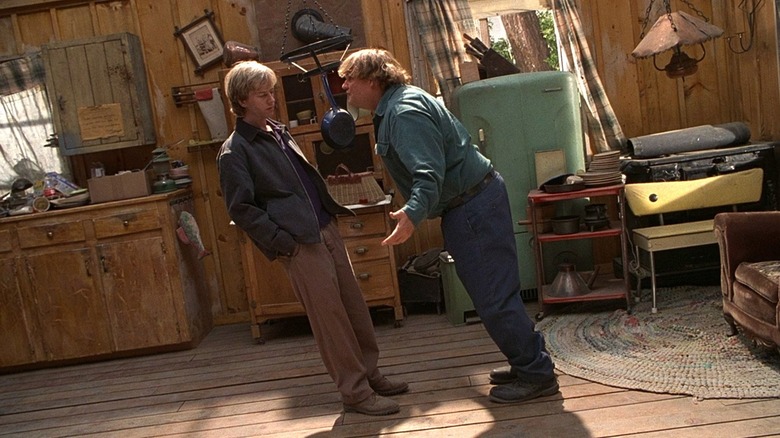
Although a broad comedy film, Chris Farley seemed to be under the impression that "Black Sheep" had the potential to be a more serious drama. As such, he wanted to downplay the comedy scenes between him and David Spade. Penelope Spheeris, meanwhile, thought Farley was the funny one, and Spade was far too caustic. As a result, Spade felt the crunch from both sides. Spheeris admitted as much, saying:
"My problem with 'Black Sheep' was that then and to this day I find Chris Farley absolutely, brilliantly, hilariously funny. I don't think I've ever even smiled at anything David Spade's ever done. Chris was lovable and positive, and David was so bitter and negative. You take your pick. I still have a recording of a message David left on my answering machine. He said, 'You've spent this whole movie trying to cut my comedy balls off.'"
Spade was clearly not happy with the way he was being treated, feeling that his comedic talents -- his razor-sharp sarcasm -- weren't being employed to the height of his talents, or even at all. Although he and Farley had worked together on "Tommy Boy," Spade felt that the comedy in "Black Sheep" was stymied by his inability to work with and rehearse with Farley. He revealed that the pair were often kept separate, allowing them to fall out of comedic synch. After a while, Spade realized that he and his co-star were making two very different movies. Spade explained:
"The main problem was that Penelope separated us. She had Chris go off and do one thing and me go off and do another. We kept saying, 'Look, our characters just need to be together. We need to fight and bicker and do all that s***.'"
The Comedic Spade, The Dramatic Farley
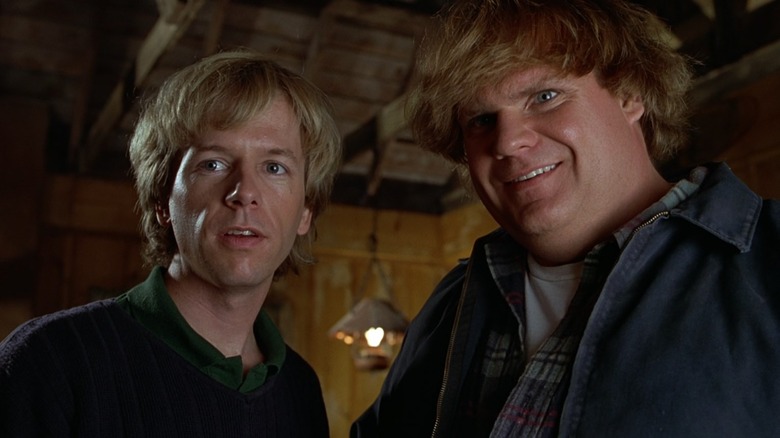
David Spade's perception of "Black Sheep" was more in line with the actual finished feature. He felt that "Black Sheep" was meant to be a slapstick farce with characters falling over and getting comedically injured. Indeed, much of "Black Sheep" is devoted to the outsized Chris Farley tumbling down hills or falling off of things. Spade was present to provide bitter-colored commentary. At one point, however, Farley seemed to feel that "Black Sheep" was a relationship film about him and the Tim Matheson character.
According to Spade, Farley even tried to reduce his co-star's role in the film so that he could spend more time building his character dramatically. Spade, naturally, was upset by this. He said:
"Chris wasn't helping much, because he thought he should be doing more dramatic stuff, that the movie should be more about his character and Tim Matheson's character and less about me. He even hinted that 'would I mind' if I got paid not to be in it so they could make it more of a dramedy. And I don't think he meant it to be offensive to me. He just wanted to act and didn't want to keep doing 'fatty falls down.' Personally, I thought it was too early; we needed more experience before we tried to do those things."
Costello & Costello
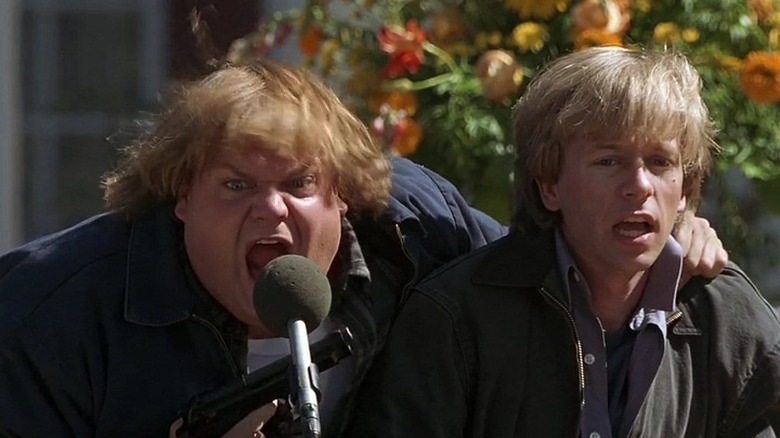
Perhaps after several buddy comedies, David Spade would have been proven right, and he and Chris Farley could indeed make more dramatic features. In 1996, however, it was not the time. Farley did get his wish, and Penelope Spheeris added more exchanges between Tim Matheson and him, leaving Spade all alone. Spade said:
"They added a few scenes for Chris and Tim to be a little more serious, and they had another writer come in to work on the ending. I didn't have Chris, and my humor is funny when I have someone to play off of."
Associate producer Eric Newman also noted the tension on-set, seeing that Spheeris wanted to make a Chris Farley movie, and not a Farley/Spade movie. And it all stemmed from the fact that Spheeris liked Farley's humor and didn't like Spade's. As such, all the powers at hand were turning "Black Sheep," clearly a comedy duo movie, into a star vehicle for one. Newman had an interesting analogy, saying:
"Actors need rules, and those rules need to come from the director. Penelope clearly didn't get David, and she really allowed him to meander. Chris Farley alone is the comedy team of Costello and Costello. You need the sharp-tongued straight man. You can pretend that you're just making a Chris Farley movie, but you're not. It's a Chris Farley/David Spade movie."
"Black Sheep" was a modest box office hit and got only warm reviews. In December 1997, Farley passed away at the age of 33 due to a drug overdose. His brother started the Chris Farley Foundation in response before shutting it down in 2012.
Spade was gracious and open about their working relationship. There were no hard feelings, and they had already talked about making a third film together.
Read this next: The 15 Best Comedy Duos Of All Time
The post Chris Farley's Dramatic Ambitions For Black Sheep Came At The Expense Of David Spade appeared first on /Film.
Get Filament and Rising Storm 2: Vietnam for Free
Sean Connery Never Struggled With His Transition From Leading Man To On-Screen Dad
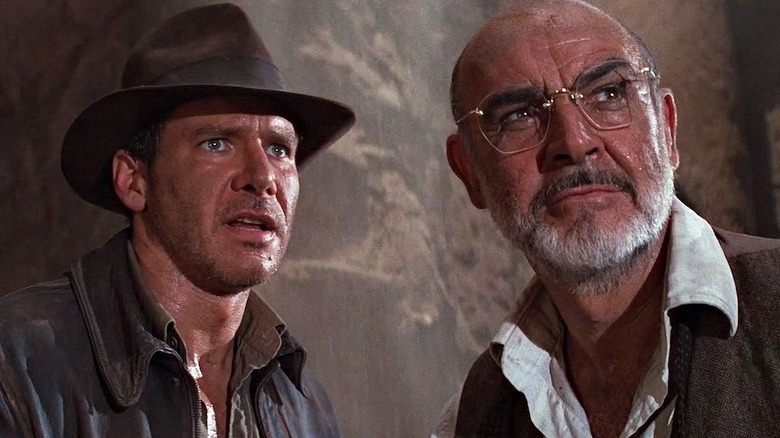
Sorry to start this article off with a bit of a bummer, but you're going to die one day. You may not exactly be thrilled about the prospect of your own mortality, but imagine how your favorite movie stars feel! The ever-ticking clock of Father Time affects us all but can be especially brutal on actors. Eventually, even the hunkiest of leading men turn into older character actors. It's infinitely worse for women, who start approaching 30 and all of the sudden are playing the mother of an actor who's only one year younger than them.
As we all inch closer and closer to eternity, some pull it off with a bit more grace than others. One actor who exemplifies this is Sean Connery. Best known for his stint as James Bond, Connery was a quintessential handsome leading man. And like most men in Hollywood, he got to spend a far longer time as the main protagonist of movies than his female counterparts — well into his 50s, Connery was still considered leading man material, but even a handsome devil with an enchanting brogue will age out of those roles.
For many performers, it's a tough transition to make when you go from the main character of a movie to the character's father. But Connery, to his credit, had a very easy time making the transition, which he spoke about in a 1995 interview with Entertainment Weekly.
Like A Fine Wine
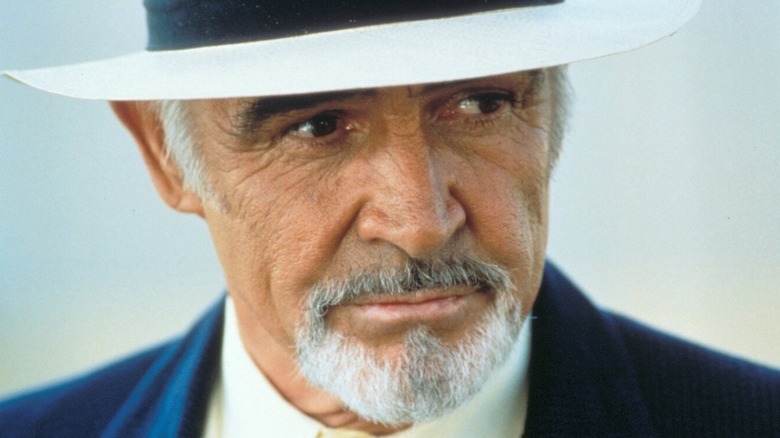
The Entertainment Weekly interview has Connery and those he'd worked with looking back on his illustrious career, and everybody was in agreement: Connery had aged like a fine wine.
"As Sean's gotten older, he's become much more subtle. He can say more with a raised eyebrow than most actors can with a whole paragraph of dialogue," said Arne Glimcher, who directed Connery in the 1995 film "Just Cause," where the actor took on one of his last leading roles.
Connery himself felt he handled his aging with grace as well:
"I never had a 'transition problem.' I've always played older. I played Harrison Ford's father and Dustin Hoffman's father. And this year, I'm going to be 65. I'm hardly going to get into a weight program and do 'Tarzan.' I could have the best body sculpting in the world, but I'm never going to be James Bond again."
Connery would hold true to his statement, turning down any and all attempts to get him to return to the role of James Bond. Connery wasn't afraid to turn down roles partially on the basis of his age, including turning down a role in "The Matrix" as The Architect, a part he simply did not understand (hey, me too bud).
It can be tough for an actor to admit that they're over the hill. Everybody wants to stay young forever and play the handsome leading man until they die. But for those who are able to embrace the changes that come with age, a whole new realm of roles and opportunities opens up.
Read this next: The 23 Best Heist Movies Of All Time
The post Sean Connery Never Struggled With His Transition From Leading Man To On-Screen Dad appeared first on /Film.
Director Damien Leone Thinks Terrifier's Key Is That It's Never Tongue In Cheek
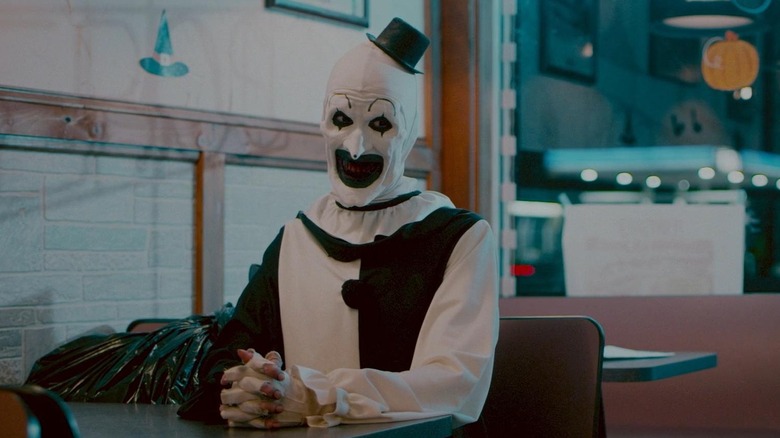
It's been wild to see the "Terrifier" film series branch out beyond the horror crowd in 2022. The destructive bloody rampage of Art the Clown (David Howard Thornton) has been going strong since 2008 with director Damien Leone's short film "The 9th Circle," along with the 2013 horror anthology film "All Hallows' Eve." But once the bodily-spewing headlines of "Terrifier 2" made the rounds, it piqued the curiosity of folks who would have otherwise never seen Leone's gory horror creation.
Art is still a ways off from being a household name like Jason Voorhees or Freddy Krueger, but if he keeps up the pace going into "Terrifier 3," the pantomime slasher stands a good chance of standing alongside them some day. What separates Art from the rest of the pack is his shtick. Imagine if a classic silent movie comedian dressed up in the most terrifying clown makeup imaginable and then started brutalizing unfortunate victims in ways you never thought possible.
But silent film wasn't the main inspiration for Art the Clown. When you look at the short form work Leone did before reaching this iteration of Art, it's clear that he holds a great reverence for a bygone era of exploitation filmmaking. In a 2018 interview with Dread Central, Leone has said that he's "a fan of so many different types of movies, not just horror movies, and the seventies is by far my favorite decade of film." It shows in his work.
The first "Terrifier" was largely a makeup effects demonstration, with Art as the demented cheerleader. People are flayed with little to no mercy. For better or worse, that's one of the reasons why the film series really stands out as a true throwback.
Leone Wanted To Make A True Grindhouse Flick
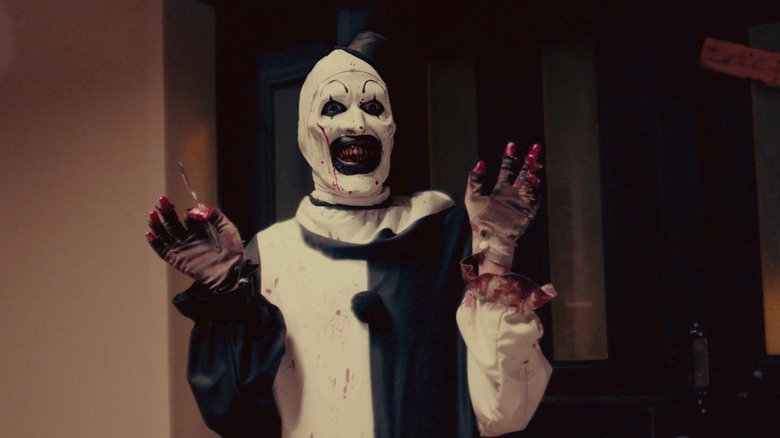
When it came to "Terrifier," Leone knew that if he wanted to make an ode to the Grindhouse era, it would have to come from a place of sincerity. He explained to Dread Central:
"You see a lot of people going out of their way to make a modern exploitation movie and they purposely make them corny. Those original grindhouse movies weren't purposely corny, the beauty of them is that they suffer from low budgets but they're trying their best to be a serious movie, it just becomes inadvertently comical. That's the charm of those movies."
Trying to make something bad or corny on purpose can backfire tremendously. There's little fun to be had in the Asylum knock-offs because they're purposely trying to capitalize on the next big movie with a "Let's do that, but purposefully worse" approach. "Sharknado" fell into this same trap.
Rather than trying to convince you that the movie wants to pay homage to a specific period of film history, the "Terrifier" films just up and do it. They are, by definition, grindhouse flicks in their purest form: uncut splatter films built upon the foundation of making you feel as if you've seen something you really shouldn't have.
If "Terrifier" wasn't released independently, there's a very high chance that its infamous hacksaw scene would have been significantly trimmed down, or excluded outright from the finished film. Whether you like these movies or not, the one thing you can't say about them is that they're holding back.
"Terrifier" is currently streaming on Screambox, The Roku Channel, and VUDU.
Read this next: 12 Underrated Slasher Movies You Need To Check Out
The post Director Damien Leone Thinks Terrifier's Key Is That It's Never Tongue In Cheek appeared first on /Film.
Remote Indigenous Community Pioneers 3D-printed Homes Set To Change Rural Lives
Read more of this story at Slashdot.
It's been 100 years since archaeologists discovered a condo made of stone-a [Vintage]
Review: God of War Ragnarok
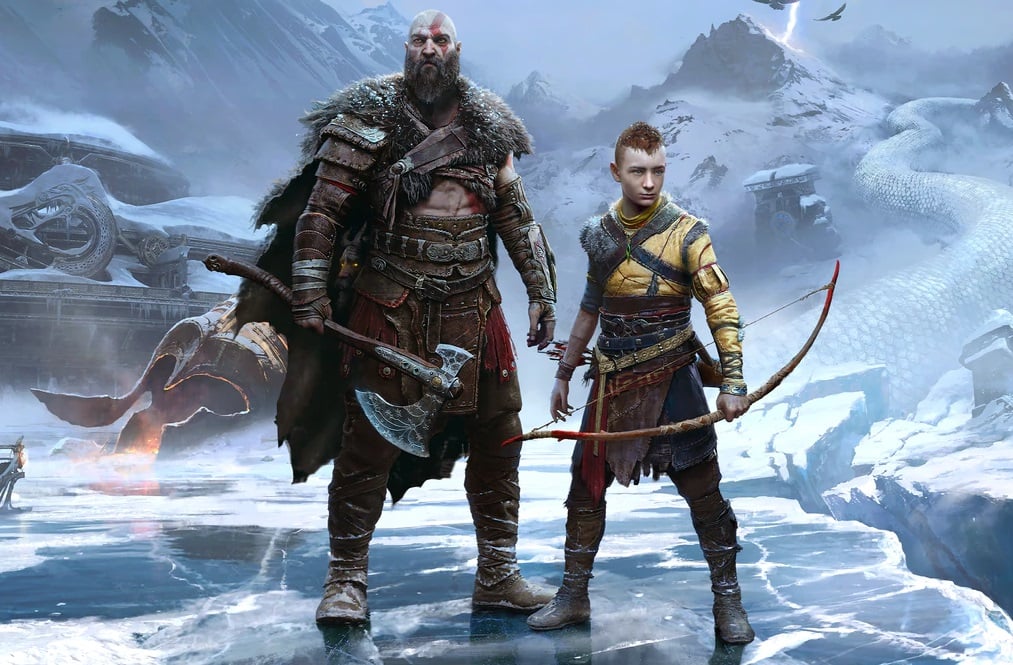
My boy was just like me
I typically start off some AAA sequel reviews waxing poetic about how "there isn't much to say that wasn't already said" about an original. But in the case of 2018's God of War, there really is!
It's fascinating that the team kept the original continuity, but drastically changed the formula, and let Kratos grow as a character and a father. The pointed focus on the relationship between Kratos and Atreus helped make the 2018 iteration intimate and relatable. The sequel, God of War Ragnarok, mostly rolls with that premise, but it also tries to juggle a ton of extra cast members as it weaves in more stories.
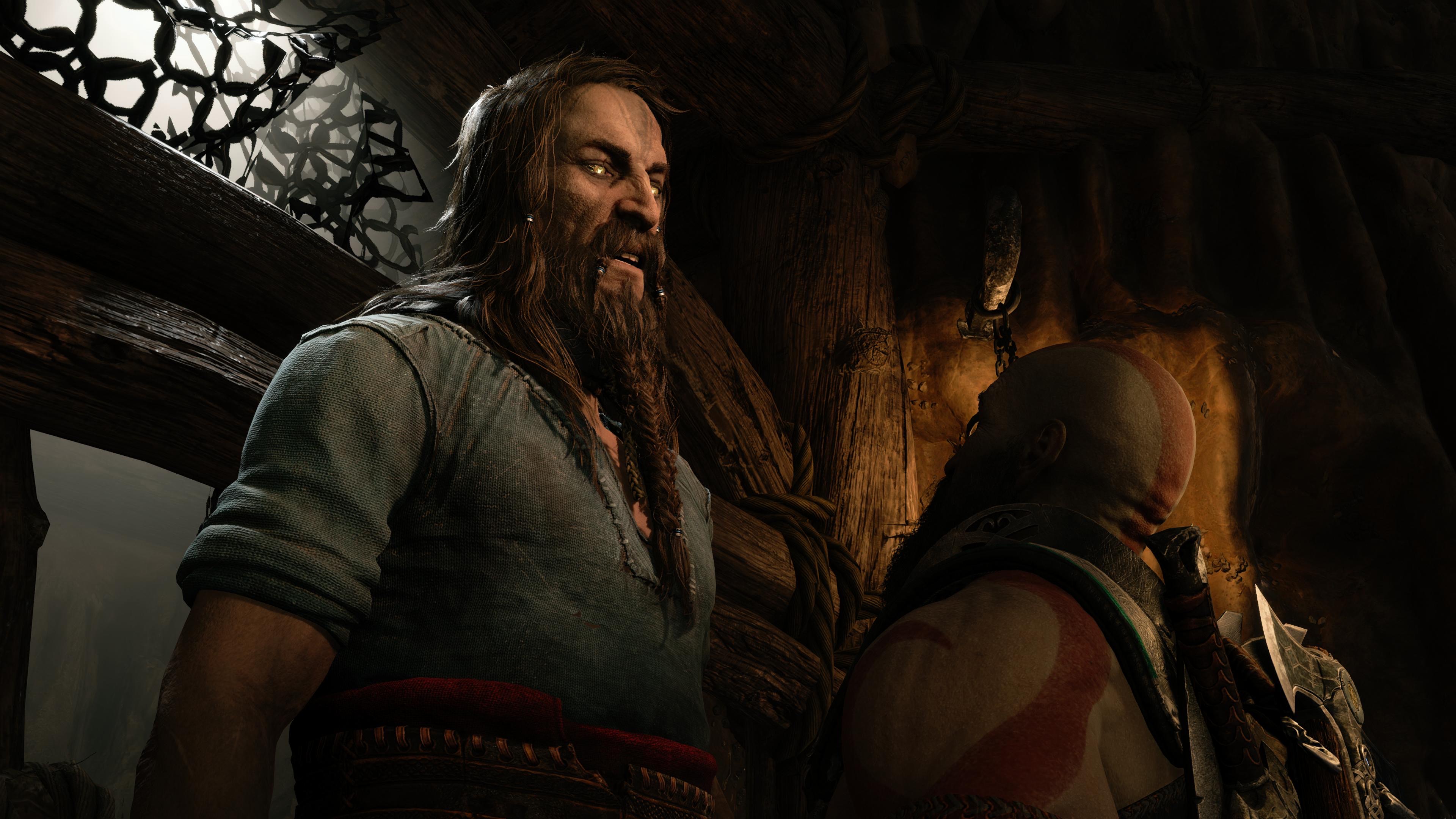
God of War Ragnarok (PS4, PS5 [reviewed])
Developer: Santa Monica Studio
Publisher: Sony
Released: November 9, 2022
MSRP: $69.99 (PS5) / $59.99 (PS4)
For me, God of War really snuck up on me. I mean, we knew about it! Sony sounded their marketing trumpets from the mountaintop for this game. But playing it in isolation as a huge classic God of War fan (particularly God of War 2), I was shocked to see the direction that the team had taken with it: making Kratos a husband and a father, struggling with his violent past. I was invested in the universe out of the gate, and there's more than enough good will there to entice me to try a sequel.
Ragnarok continues the adventures of Kratos and Atreus (who is playable at points, complete with his own mini-loadout and skill trees), who are prepping for the titular potentially world-ending event, directly following the conclusion of God of War 2018. Even though you'll miss some emotional resonance and some relationship/dialogue nuances, there is a God of War recap that you can watch from the start.
Kicking off with a low key hutting expedition, Ragnarok doesn't really waste much time. If I could describe the pacing of the story as a whole, it would be moments of urgency bundled with periods of calm. There's a ton of walking and talking and exposition, which is kind of required given the larger scope and universe-sensitive stakes. You're still traveling between realms this time, and it quickly becomes a road movie.
https://www.youtube.com/watch?v=dIQGI36BxDE
Kratos is already a tad more fatherly, but still cold with room to grow. Atreus is older and more capable, but still compassionate, and a direct opposite of his dad in some ways, while still being a chip off the old block. Mimir (the talking head companion you rescued in the first game) is also in the mix, and is as entertaining and loud-mouthed as ever. Some of the most intriguing bits of Ragnarok are found in the arcs dealing with Kratos and Atreus: either together or apart. There's some backstory that the team held from the 2018 edition spliced in, amid all of the new stuff happening.
Combat, a big reason why people gravitate toward this franchise in the first place, is mostly the same: which works for me. There's a dodge, parry and block system on the defensive side, which can be plussed-up through various means like skill trees, to create even more engaging timing sequences. You'll mostly be using your [Leviathan] axe and blades [of Chaos], with a third main weapon that I won't spoil here.
One of the big upgrades for the first two weapon types in particular though is the ice and fire synergy. The icy axe and fiery blades can be charged up with the Triangle button, to imbue elemental powers in them and open up more attacks. Like several other action games before it (including DmC even), you can chip off shields of the opposite type on some enemy types.
At first, I was worried that the team would go overboard with this system, and have the entire game based around the "opposites" approach. Thankfully that's not the case, and you don't even really need to use all of the tools in your toolkit to be successful. There's so many options to approach any given fight, and you can tech into certain playstyles with skill tree and gear changes.
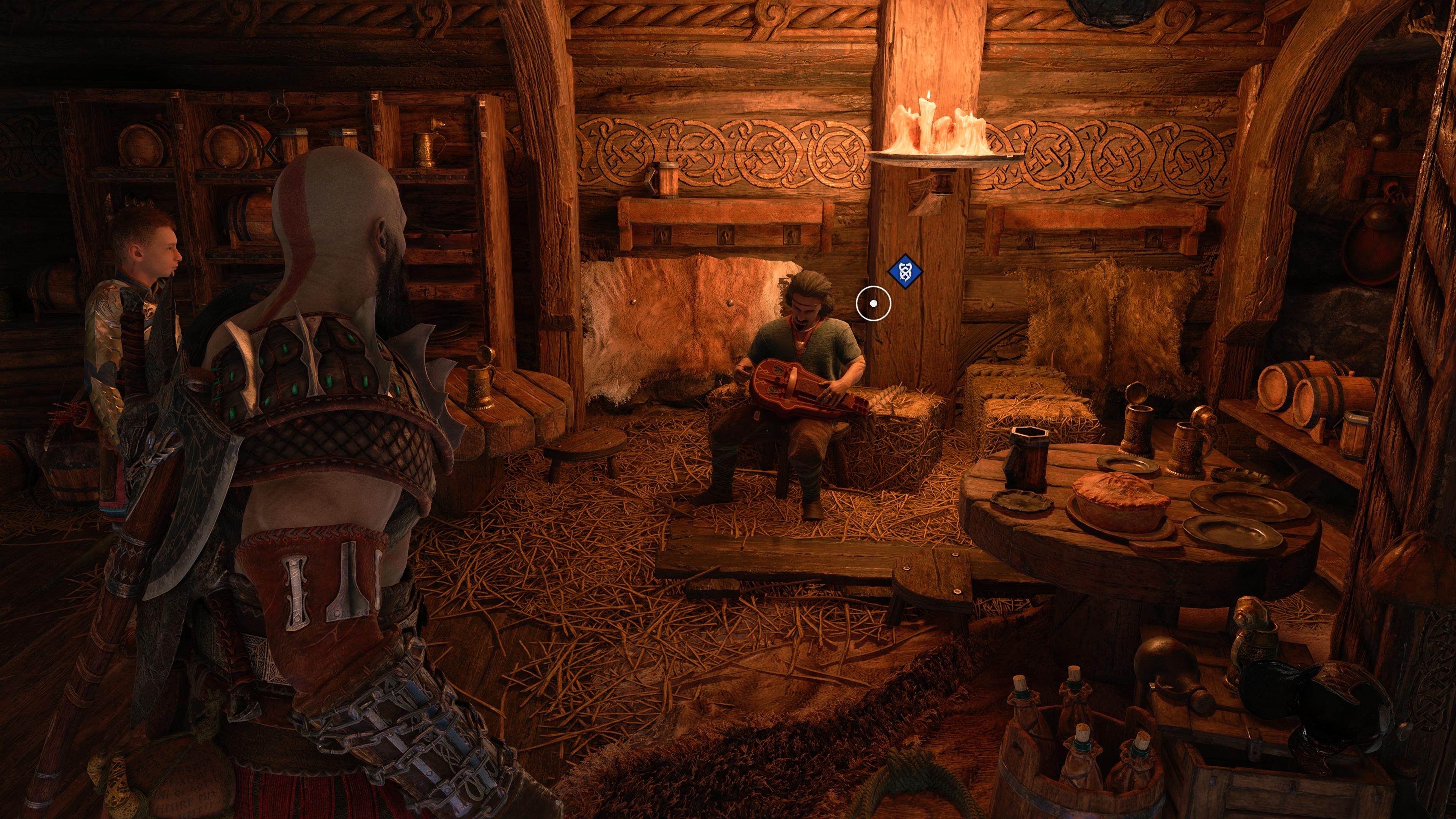
Combat is still really punchy, and can often feel like a dance. I never really got tired of throwing an axe into one enemy to freeze it, then turning to beat up another one, then recalling the axe to finish them off. Although a lot has changed about this series combat is still brutal; with some vicious takedowns (triggered by R3 after an enemy is nearly dead) on full display. While I'm not going to spoil any boss fights, a select few are cemented among my favorites in the series (including a callback to the Narcis Prince archetype).
Like the first game, sidequests are often directly tied to the story and the cast, usually after you acclimate to a new zone: without overdoing it and adding a ton of annoying pins to each disconnected sandbox. The main quest is roughly 20 hours (a little more with exploration), and all the sidequests, the leveling/gear system, and a few extras after completion will potentially double that number.
Mechanically, it's easy to tweak things to your liking too, to assist on that long ride. There's tons of accessibility presets, including vision, hearing, motion, and motor toggles: on top of five difficulties (the last of which (Give Me God of War) can't be reselected if you drop down. There's options for a variety of experiences, and it's one of the most accessible games ever made.
Of course, a soft reset is kind of hand-waved away through fleeting mentions of stuff like the extreme winter "wearing down" some of Kratos' powers, and the fact that Kratos "used" all of the armor provided to him from the blacksmiths Brok and Sindri (who return in the sequel as companions and helpers, albeit with a bit more depth).
The father and son dynamic is still an emotional throughline, with Mimir sometimes acting as the reasonable impartial uncle. It's still hilarious to see Kratos as the straight act to goofier or lighter fare, and there's some really funny dialogue this time around that leans into that angle. The new additions are fantastic for the most part, as Ryan Hurst is incredible as a tortured Thor, and Richard Schiff really gets to spread his wings as the complicated Odin.
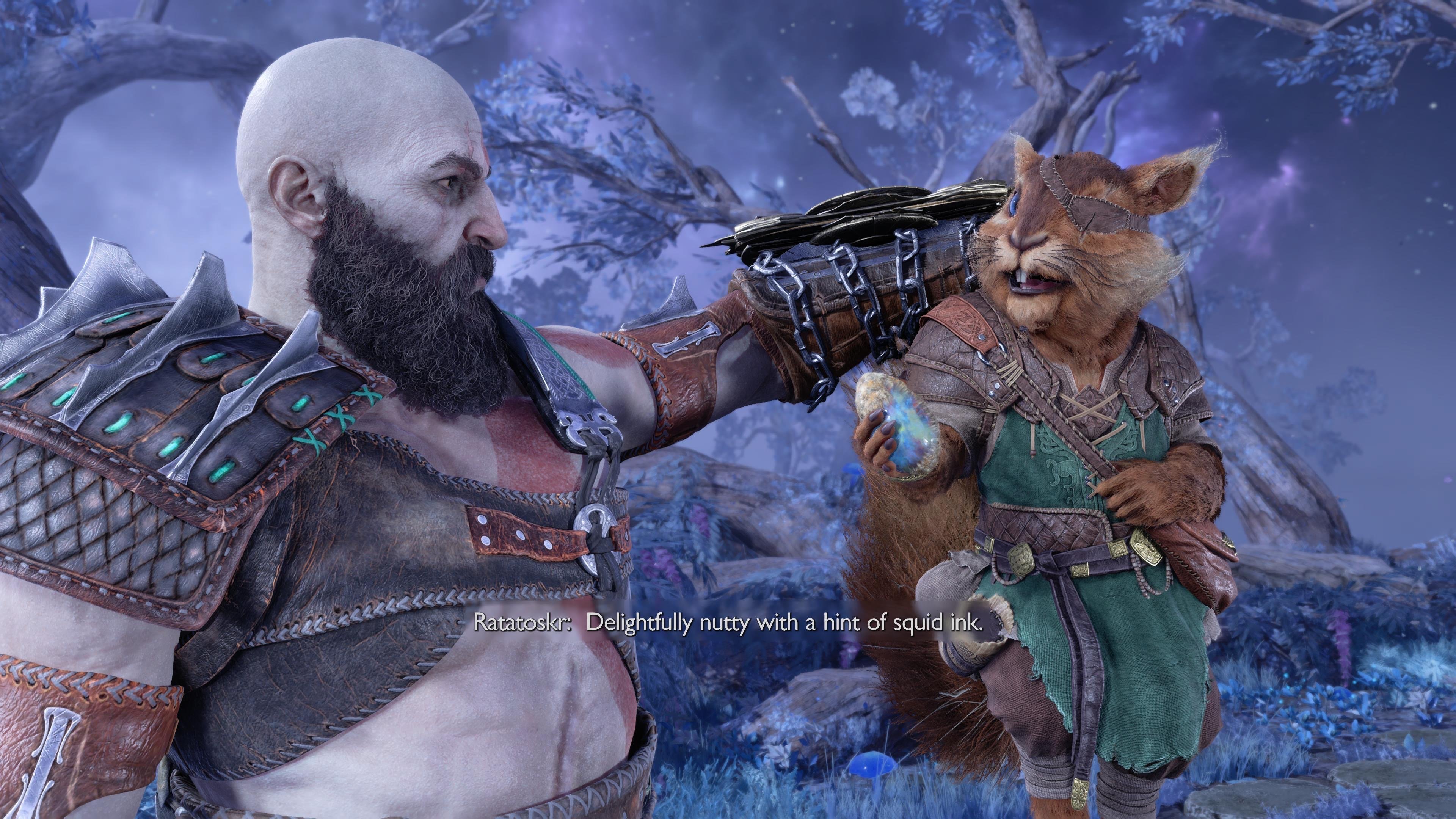
And don't forget the banter! There's so much dialogue and lore to take in it's insane at times. It can even reach the cusp of becoming exhausting, as a minor walk to a quest could end up becoming a crucial lore dump. Everyone who found themselves poring over this new universe will be stoked.
Before too long though, we get a ton of characters thrown at us, some of which leave a more lasting impact than others. At times, especially mid-to-late game, I felt like this could have actually been a trilogy all on its own, with a little more time to linger on some of the events and moments therein. That same sense of overstaying a welcome can extend to the enemy types in Ragnarok: some of which are plucked from the original game, which the same basic strategic concepts.
It can lead to more downtime, which may or may not gel with how you interact with a God of War game. I appreciated the streamlined and constant growth of Kratos and Atreus' relationship in the first game, but the sequel has a lot of moving parts, and I didn't connect with all of its cast.
God of War Ragnarok is a fantastic showcase of what this series has to offer, and a sterling example of how it still has life left in it. While not everything lands with the sequel from a story perspective, the core of the original is preserved, with some new twists and turns still to go. I'm fully on board with whatever Sony Santa Monica comes up with next.
[This review is based on a retail build of the game provided by the publisher.]
The post Review: God of War Ragnarok appeared first on Destructoid.
[Steam] (Game) Warhammer: Vermintide 2
![[Steam] (Game) Warhammer: Vermintide 2 [Steam] (Game) Warhammer: Vermintide 2](https://external-preview.redd.it/jFY6QdIU9v0qx92VL5TdM5smH8QwpiD0knpByiNPbVc.jpg?width=320&crop=smart&auto=webp&s=927b792965d81bd012fe5637b7710a4f72b63fa5) |
submitted by /u/Lobsterknight43 [link] [comments] |
Godzilla Lost Something When He Became A Hero, According To Certified Monster Expert John Carpenter
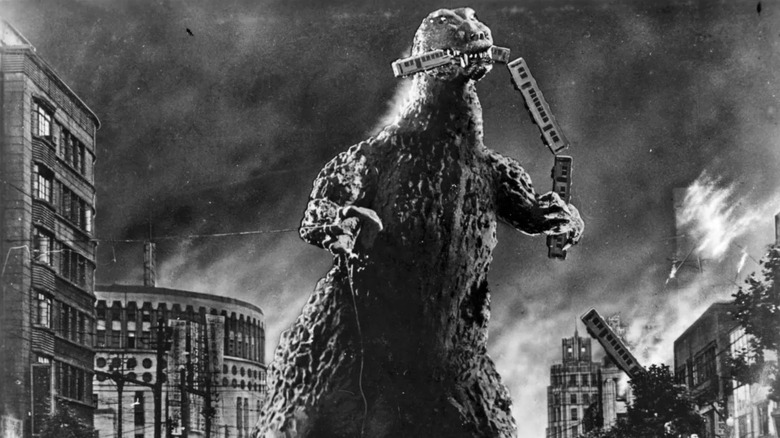
There's nothing like sitting down to watch a movie, possibly one you haven't seen before, while in the comforting presence of the television horror host. Folks like MeTV's Svengoolie and Shudder's Joe Bob Briggs ("The Last Drive-In") have kept the communal experience of a bygone era running strong into the 21st century. Even Elvira, the Mistress of the Dark, jumped back into her delightfully ghoulish ways with her own special last Halloween. Even though the Halloween season has passed us by once again, a master of his craft has stepped in to guide us through one of cinema's greatest Kaiju.
To celebrate "Godzilla" day, legendary filmmaker John Carpenter will be hosting a select few of the fire-breathing lizard's features on Shout Factory TV with "Masters of Monsters." Starting November 3, Carpenter will be at the center of a four-day event, with "Gojira," "Rodan," "Ghidorah, the Three-Headed Monster," and "The War of the Gargantuas," where he'll be giving his insight and other fun observations.
Even if you're a "Godzilla," aficionado who has seen these movies too many times to count, it's difficult to pass up this special experience, especially if you've seen Carpenter in interviews. He's a man of unfiltered opinions when it comes to the wide world of horror. In preparation for this event, the "Halloween" filmmaker shares an interesting point-of-view on Godzilla.
'He's An All-Purpose Monster'
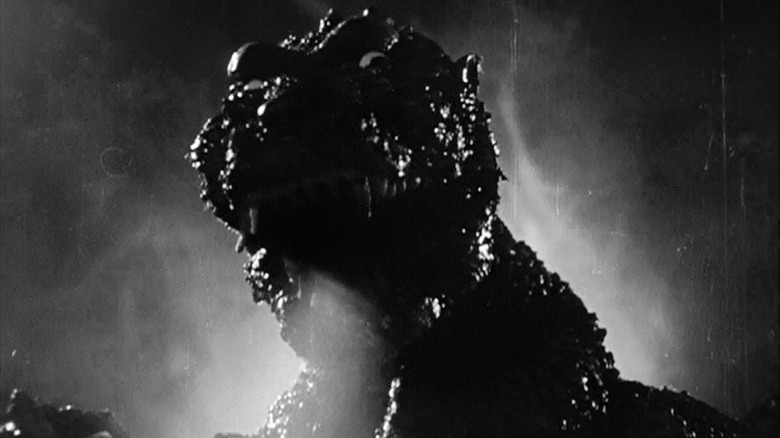
In an interview with Den of Geek, Carpenter talks about how turning Godzilla into a more heroic figure took something special away from the character. "We don't want him to be a good guy, but people loved him that way," says the "Prince of Darkness" filmmaker, also adding, "Well, I wasn't a fan of that, but yeah, he lost something."
After all, the King of the Monsters started out as a walking metaphor for the destruction caused by nuclear annihilation in Ishirō Honda's 1954 classic. Carpenter shows a great reverence for the amphibious monstrosity as a result of corrupted nature, but he recognizes that Godzilla can be a great many things:
"He's been an arch-villain. He's been a savior, a hero who saves the Earth. He's an all-purpose monster. Anything you need, he's there for you. If you need him to be a vicious world-ending creature, he's there. If you need him to save the earth, he's there. That's why we love him. There's something great about any big reptile who destroys a city, he is in our hearts."
When you have a monster that has lasted over nearly seven decades of films, there are bound to be changes in how he functions. He may not have been quite the friend of all children like "Gamera" has, but you can definitely point to periods where the towering Kaiju skewed towards the side of good, based purely on how bad his monster opponents were.
Godzilla Will Always Have A Complicated History
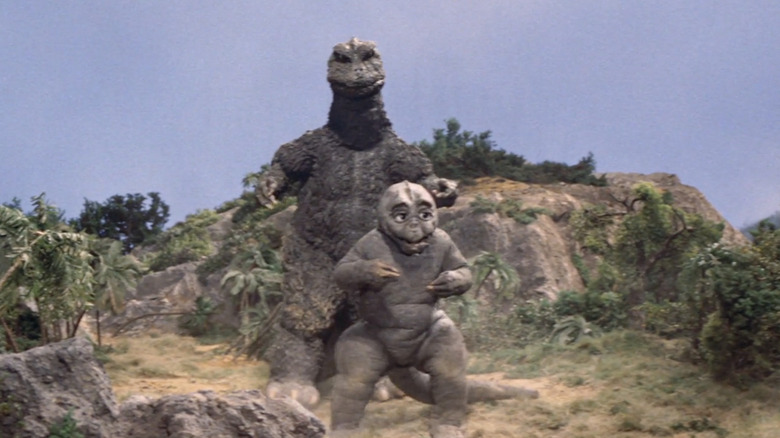
Godzilla often transforms based on what the period needs him to be.
The Toho films, especially, have been split into four distinct eras: Shōwa, Heisei, Millennium, and Reiwa. Each of the ways in which they use him is vastly different from one another, with the common throughline being some form of destruction. The "Gojira" Godzilla versus the terrifying force in "Shin Godzilla" share a different, albeit similar DNA. Neither makes the destruction look like anything but an apocalyptic event bred by the drive to create a super weapon unlike any other.
The stark look of black and white shows a more ferocious side to the monster. You know it's Haruo Nakajima in the suit, but the low-angle shots of Godzilla firing up his atomic breath are still horrifying. Cut to 15 years later with "All Monsters Attack," where the monster is at the center of a child's imagination as a means of facing his fears.
The American "Godzilla" movies have always struggled to fight the right balance, with Gareth Edward's 2014 film coming the closest. "Godzilla" will always be the most effective when he's, but there's also something so captivating in watching a man in an exquisitely detailed costume knocking down building models. There's room for both.
"Master of Monsters" will start streaming today on Shout Factory TV, in addition to the next three days.
Read this next: Sci-Fi Villains That Were More Right Than We Want To Admit
The post Godzilla Lost Something When He Became a Hero, According to Certified Monster Expert John Carpenter appeared first on /Film.
Steven Van Zandt Created The Character Of Silvio Long Before He Was Cast In The Sopranos
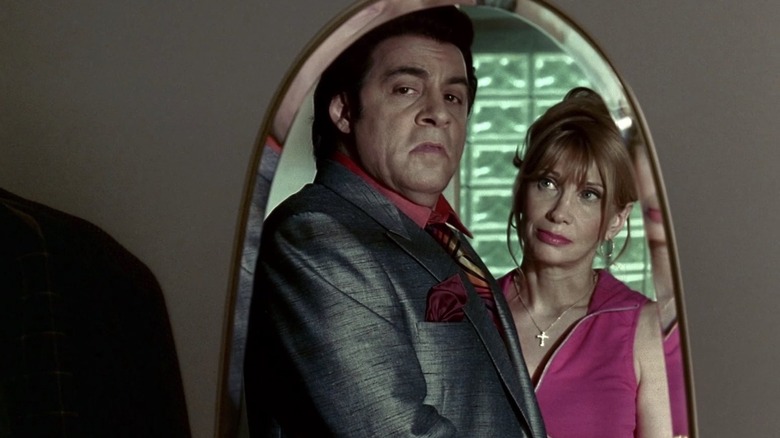
Before starring on HBO's hit prestige drama "The Sopranos," Steven Van Zandt's claim to fame was as a solo artist, hit songwriter, activist, and member of Bruce Springsteen's E Street Band. He scored the memorable role of the wingtip-wearing consigliere Silvio Dante on "The Sopranos" despite no acting experience. As advisor to crime boss Tony Soprano (James Gandolfini), Van Zandt's Dante is more than a wise guy caricature; Silvio is among the most level-headed members of Tony's crew, mediating meetings and executing orders but unafraid to tell his boss the truth (which Van Zandt compared to working with The Boss). In Brett Martin's "The Sopranos: The Complete Book," Van Zandt describes Tony's lifelong friend as "the only member of the family who was happy where he was" with few ambitions beyond those in his backstory – a background created by Van Zandt himself.
Co-stars Michael Imperioli and Steve Schirripa's comprehensive deep-dive book "Woke Up This Morning: The Definitive Oral History of The Sopranos" contains firsthand insights on the show from cast and crew, including Van Zandt. There, the multi-hyphenate reveals how he shaped Silvio Dante's bio:
"I wrote that biography. And I also figured if I can look in the mirror and see the guy, then I can be the guy. So I found out where John Gotti got his clothes made. I decided what he looked like, and the fact that he romanticized the earlier years in the mob, the forties and fifties, all that. And designed the hair to be more of a throwback, old-school, fifties hair. Those guys never did change their hair. I wasn't thinking about my age, so I had him growing up with Tony Soprano and they were best friends."
First, Some Context
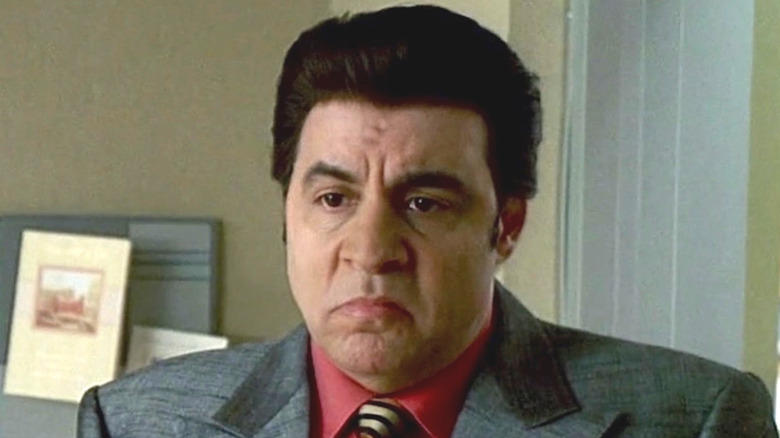
Van Zandt's performance throughout the show's six seasons is especially magical when you consider that he had done a whole lot of singing, strumming, and songwriting, but hadn't acted a day in his life before stepping foot onto the set of "The Sopranos."
On episode 60 of The Talking Sopranos podcast, the Jersey activist recounts how he was cast in the series as the eventual result of his Rock and Roll Hall of Fame induction speech for Jersey rock band The Rascals. It's a gem of a speech in which he praises The Rascals as the first true rock band and downplays The Beatles as "some guys making noise" over in England at the time. You don't have to be a Rascals fan to feel the genuine appreciation emanating from Van Zandt:
His delivery had the audience cackling and piqued the interest of Chase, who directed "Sopranos" casting directors Georgianne Walken and Sheila Jaffe to locate Van Zandt, which they did through his Rock and Roll Forever Foundation (a "School of Rock"-esque non-profit which creates arts-driven educational materials for K-12 classrooms) and invite him to come audition for the show.
Van Zandt raised a highly relevant issue: he wasn't an actor. Chase's prophetic response: "Yes you are an actor, you just don't know it yet." Van Zandt, Chase plotted, would be one of the new faces that would ground the series. He further tells the podcast hosts that he had read for, and was briefly cast as, Tony Soprano before HBO vetoed the decision with the argument that an experienced actor play the lead role. And thank goodness they did.
A Bio And The Birth Of The Bada Bing!
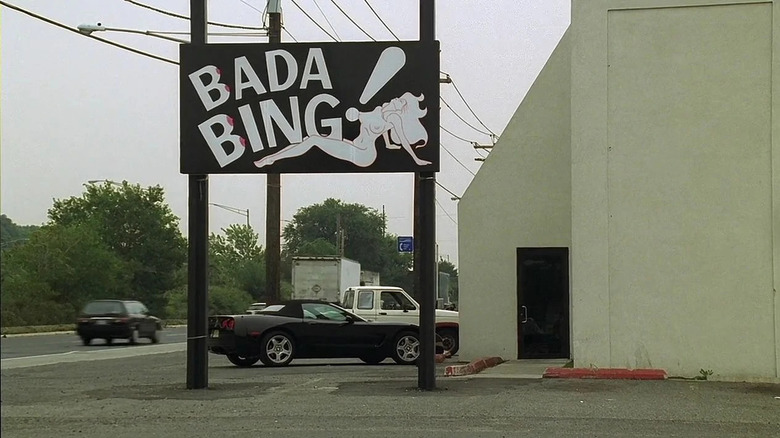
In the book, Van Zandt further reveals that the backstory crafted for Silvio came from a pre-"Sopranos" treatment he had written, which he describes as a recalibrated version of one of the most celebrated classic films of all time. He tells Imperioli and Schirripa:
"I've finished the actual script, but at that point it was just a treatment of a retired hit man who opened a club. He was living in the past, with a Copacabana type of club set in contemporary times. But you walked into this club and you were back in the fifties; it had the big bands and the Jewish comics and the dancing girls."
The owner of this club even had the name Silvio Dante, and he was a picture-perfect progenitor of the stylish right-hand man of the DiMeo crime family, from the slicked-back hair down to the sovereign rings. Van Zandt reportedly brought the club concept to the "Sopranos" showrunner, who was into it until the budget cloud came to rain on the parade.
"Basically I was rewriting 'Casablanca.' A lot of things happened in the club. The five families had their tables, the police commissioner had his table, everybody had their table. And then Silvio Dante would be hired to do special jobs. He said, "Well, this is a great idea. I think this show could use a club." And then he comes back a couple of days later and says, 'We can't afford what you're talking about, but we'll make it a strip club.'"
There you have it. "The Godfather" may have popularized the phrase "bada bing," but you can thank Steven Van Zandt and David Chase for the shake joint, the place of one of the best musical moments of the series.
Read this next: The Best Movies Streaming Right Now: Malignant, A Hero, And More
The post Steven Van Zandt Created The Character Of Silvio Long Before He Was Cast In The Sopranos appeared first on /Film.
Review: GIRL AT THE WINDOW, A Down Under REAR WINDOW
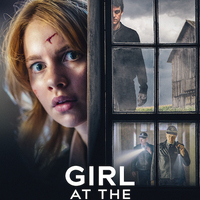 A Down Under Rear Window clone by way of '80s slashers and Ozploitation chillers of the late 20th century, Girl at the Window promises far more than it eventually delivers. It begins with a positively nightmare-fueling scene involving a supremely self-centered teen, a coin-operated photo booth, and the sudden appearance of a naked, one-eyed corpse propped up behind her. It's neither dream nor nightmare, but the result of the almost mystical machinations of a random serial killer the local media has tritely dubbed "The Clockwork Killer,” presumably because he follows a pattern that involves targeting couples, kidnapping, and murder, all within a three-day span. Then again, the identity of the serial killer, once revealed in the late stages of Girl at the Window's mercifully brief...
A Down Under Rear Window clone by way of '80s slashers and Ozploitation chillers of the late 20th century, Girl at the Window promises far more than it eventually delivers. It begins with a positively nightmare-fueling scene involving a supremely self-centered teen, a coin-operated photo booth, and the sudden appearance of a naked, one-eyed corpse propped up behind her. It's neither dream nor nightmare, but the result of the almost mystical machinations of a random serial killer the local media has tritely dubbed "The Clockwork Killer,” presumably because he follows a pattern that involves targeting couples, kidnapping, and murder, all within a three-day span. Then again, the identity of the serial killer, once revealed in the late stages of Girl at the Window's mercifully brief...
[Steam/Epic/PS/Xbox] (DLC) Dying Light 2 - Dying Laugh Bundle
Note: base game required for Steam and Epic. Not for Playstation and Xbox, everyone can claim that. Free for one week until November 10.
Steam: https://store.steampowered.com/app/2156750/Dying_Light_2__Dying_Laugh_Bundle/
Epic: https://store.epicgames.com/p/dying-light-2-stay-human--dying-laugh-bundle
Playstation: https://store.playstation.com/search/dying%20light%202%20stay%20human%20dying%20laugh%20bundle (first search result)
Xbox: https://www.xbox.com/games/store/dying-light-2-stay-human-dying-laugh-bundle/9PG3V8GV9WPG/0010
[link] [comments]
How The Real-Life Friendship Between Jon Hamm And Elisabeth Moss Influenced Mad Men
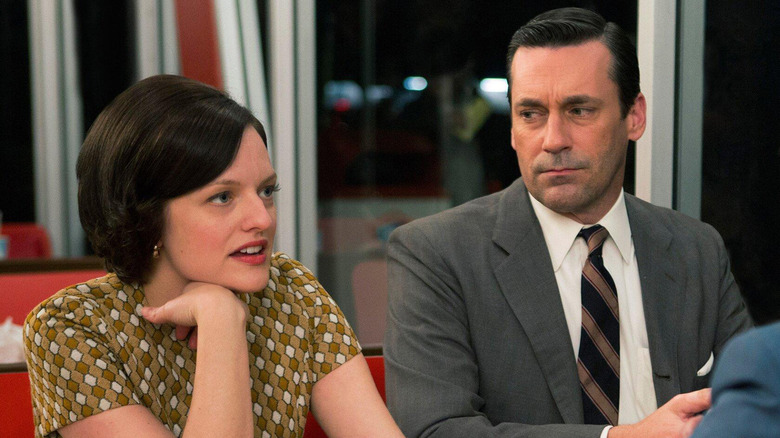
"Mad Men" is a deeply philosophical, introspective show that focuses on characters who all deal with some sort of isolation or loneliness. For Betty, it's the isolation of being a '60s housewife. For Don, it's the loneliness of nobody around him knowing who he truly is. For Peggy, it's being one of the only women in a male-dominated field rampant with sexism. With work-focused characters struggling so much just to not feel alone in the world, the relationships between the employees of Sterling Cooper are some of the strongest points on the show.
One relationship that sits at the very heart of the show is that between Don and Peggy, played by Jon Hamm and Elisabeth Moss respectively. What begins as a simple employer/employee relationship evolves into that of a surprisingly close mentor/mentee. Don is one of the first men in their workplace to believe in Peggy's ability as a copywriter and becomes a major influence on her professional life. Peggy is aware of Don's personal coldness, but still holds a fondness for the man who helped her out at times when nobody else would.
According to a Vanity Fair interview with Moss, the close relationship between Don and Peggy extended beyond the screen. Moss and Hamm's real-life relationship was also that of a mentor and a mentee, and they utilized their real-life feelings for one another to invigorate their greatest scenes together.
'It All Felt Very Real'
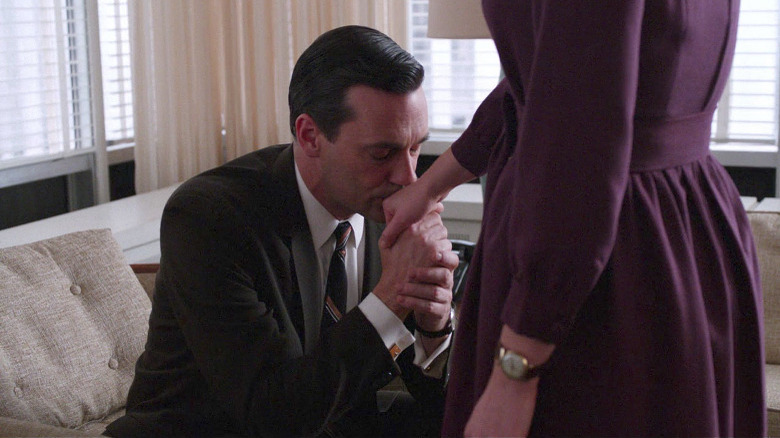
In the Vanity Fair interview, Elisabeth Moss reflects on one of the most pivotal scenes in the relationship between Peggy and Don, when Peggy decides she'll be moving on to another agency. In a moment where a visibly terrified Peggy is afraid that announcing her departure will be received with the anger Don is prone to, he responds with a surprising amount of tenderness, kissing her hand gently while tears well up in her eyes. According to Moss, filming this scene meant a lot to both actors:
"It all felt very real. I have a very close relationship with Jon [Hamm]. There was sort of like a mentor/protege relationship there, very older brother/little sister. And so it meant something to the both of us when we did this scene ... Those are real tears ... because he held onto my hand and didn't let go and then kissed it. None of that was in the script, and he did it on my close up. Like, that right there is the real Jon."
In a scene where Don quietly accepts the fact that his student is moving on, and that he'd no longer be working with her day in and day out, there's a clear reflection of their real-life relationship. While Moss wouldn't actually be leaving the show, Hamm was still clearly proud of the work and growth they'd done together. And now they'd be scene partners less often, which would be sad for Hamm, who was nervous acting for most of the run of "Mad Men." But beneath all of that, Hamm is proud of Moss, just as Don is of Peggy.
Rare Respect
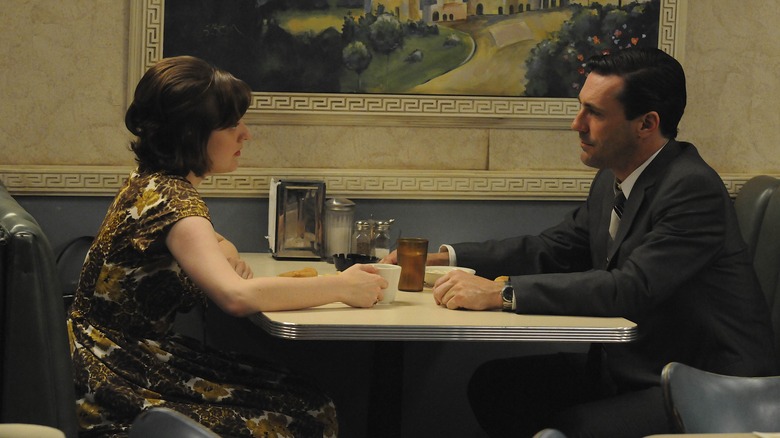
While Don goes through a plethora of different romantic entanglements on "Mad Men," it's his relationship with Peggy that serves as his anchor on the show. Even at the end of the series, when Don has disappeared to California and most people have written him off, Peggy is one of the three people Don calls, along with his daughter and his dying ex-wife. To him, Peggy was clearly one of the three most important people in his life.
While it's hard to say whether there was any actual love between the two characters, whose relationship was often strained by the stresses of work, there was something that came very close and indeed sometimes acted as a substitute for the love they often lacked in their personal lives. In a TV Insider interview from 2015, Jon Hamm reflected on the nature of the relationship between the two characters:
"It's a relationship that started severely unequal and has moved, in a certain way, to equals. It's not love, I don't know what it is, but it's some other thing, even though, at a lot of times, he is dismissive of it, it's the one relationship I feel like Don actually treats with respect."
It's this respect that Don rarely doles out freely that elevates his relationship with Peggy above many others. Don's a cynical man who doesn't believe in much, but he believed in Peggy, even if just in a professional capacity. And this belief in Peggy's ability is similar to Hamm's belief in Moss.
Their Relationship Is More Than That
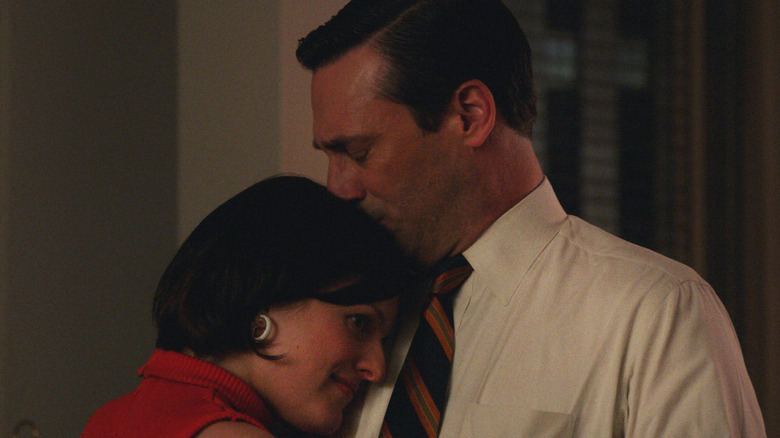
For a character like Don, who's a serial womanizer to a self-destructive level, having any non-sexual relationship with a woman is quite unusual. And much like Jon Hamm and Elisabeth Moss' real-life relationship during the making of "Man Men" (rumors aside), Don and Peggy's connection never becomes romantic.
Both Hamm and Moss have agreed that's a hugely important aspect of their characters' relationship, and part of why it's so interesting. "People are constantly asking if they're gonna sleep together," said Moss, speaking to Vulture in 2012. "I always get annoyed, because their relationship is more than that."
"People want to put us in a 'Sam and Diane' box, but it's about their mutual appreciation for the work," added Hamm. "That's where the material strikes its resonant chord, when it's ostensibly about one thing and then it becomes about so much more."
Just like Don and Peggy, Hamm and Moss bonded partially through a mutual appreciation of each other's work -- one that became a lasting friendship they cherish to this day over the eight year run of "Mad Men." It's this mutual respect and love that allowed both performers to bring genuine emotion and heart to all of their shared scenes.
Read this next: The 20 Best Female Friendships In TV History, Ranked
The post How the Real-Life Friendship Between Jon Hamm and Elisabeth Moss Influenced Mad Men appeared first on /Film.
It used to be that if you wanted to visit the Mississippi's many shipwrecks you'd need SCUBA gear, but thanks to the drought, right now all you need are hip waders [Scary]
12 Movies Like The Hangover That Are Absolutely Hilarious
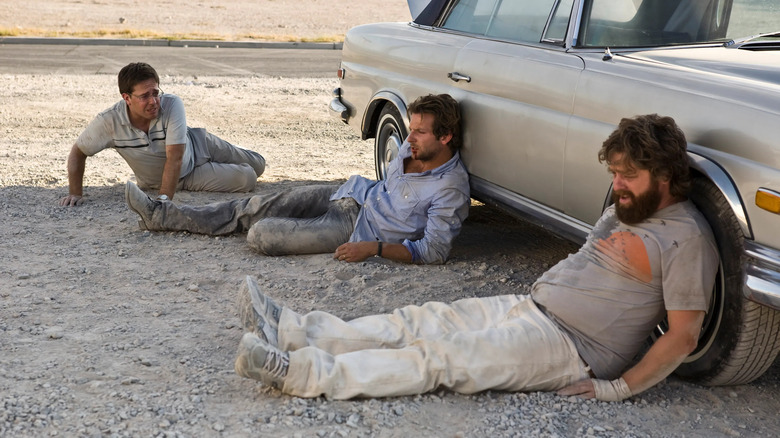
"The Hangover" is one of the most influential comedy films of the 21st century, and certainly one of the raunchiest. While comedies have been testing the boundaries of acceptable content since their inception, "The Hangover" truly showed audiences something they had never seen before. Part of the reason the film became so iconic is that it was an event. You simply had to see what type of debauchery Phil Wenneck (Bradley Cooper), Stu Price (Ed Helms), Alan Garner (Zack Galifianakis), and Doug Billings (Justin Bartha) managed to get up to after a bachelor weekend goes awry. The cast and crew of "The Hangover" have gone on to find even more success. Bradley Cooper received praise for his powerful turns in "Silver Linings Playbook," "American Hustle," "American Sniper," and "A Star Is Born." Director Todd Phillips has also gone on to more serious projects with the film "Joker."
Even though "The Hangover" is just over a decade old, it's hard not to feel somewhat nostalgic about the ridiculous R-rated comedy. In a post-pandemic cinematic landscape, comedy films have underperformed financially, and are often sent to streaming services instead of theaters. Laughing with a packed audience of moviegoers is an experience that many cinephiles long for again. If you loved "The Hangover," make sure to check out these hilarious comedies as well.
Animal House (1978)
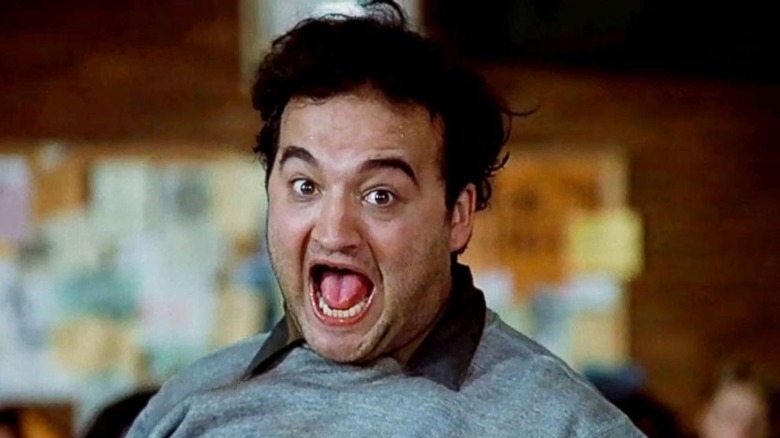
Similar to "The Hangover," almost every member of the cast and crew of 1978's "Animal House" went on to become an influential figure within the world of comedy. The project was spearheaded by "National Lampoon" co-founder Douglas Kenny and directed by John Landis. Similar to Todd Phillips, Landis found a way of inserting social satire into a film that had no shortage of gross-out moments. Landis reflects on how the outsiders, weirdos, and outcasts of Faber College might be smarter than the supposedly "prestigious" Omega Theta Pi fraternity.
Both "Animal House" and "The Hangover" feature a group of complete goofballs that you can't help but root for. Even though they're up to no good, the members of Delta Tau Chi aren't overtly malicious. They manage to accept Larry Kroger (Tom Hulce) and Kent Dorfman (Stephen Furst) into their ranks when no one else will. Both films celebrate and satirize the nature of male friendships, where — despite their bickering — the characters have a genuine affinity for each other. "The Hangover" is filled with incredible moments of physical comedy that feel somewhat inspired by the amazing work that John Belushi does in "Animal House." His character "Bluto" manages to rally his friends as they get into all types of trouble. There's an amusing footnote noting that Bluto went on to become a member of the US Senate. That somehow seems pretty realistic in the 21st century.
After Hours (1985)
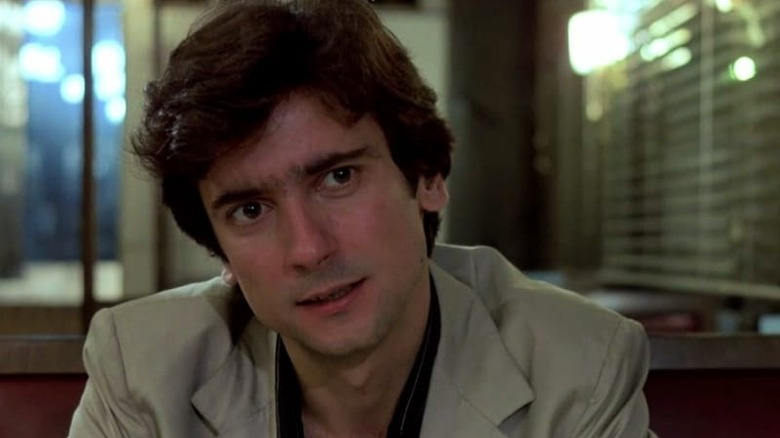
Todd Phillips has often talked about the influence of the great director Martin Scorsese on his career. "Joker" is in many ways a tribute to both "Taxi Driver" and "The King of Comedy," and "War Dogs" feels like a mash-up of "Goodfellas" and "Mean Streets." Phillips has even stated that his next film, "Joker: Folie à Deux," is inspired by Scorsese's 1977 musical "New York, New York." However, the Scorsese film that feels closest in tone to "The Hangover" is actually one of the more underrated projects of his career. Although Scorsese is best known for his gripping crime sagas, he took a swing at outlandish comedy with his 1985 romp "After Hours."
Like "The Hangover," "After Hours" takes a simple premise and escalates it into absurdity. After Paul Hackett (Griffin Dunne) goes on an awkward date, he is unable to return home as he gets caught up in various misadventures in New York City's SoHo district. Similar to what happens to the gang in "The Hangover," almost everything that could possibly go wrong for Paul goes wrong. It's hilarious to watch his luck get even worse as the story goes on. While the cast of "The Hangover" bounce off of each other's energy, Dunne carries the entire film on his shoulders. He's both pathetic and endearing. Both Scorsese and Phillips were able to analyze male anxiety, and Paul begins to feel the pressure to be more "masculine" as he's preyed upon during his adventure.
Mallrats (1995)
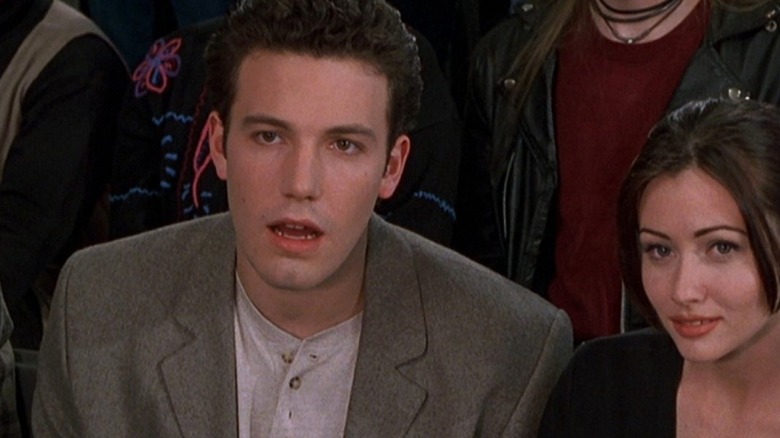
There's a strong connection between the films of Todd Phillips and Kevin Smith. Both directors like to tell stories about raunchy, somewhat obnoxious characters who somehow manage to be endearing. They are also keen to insert a fair amount of pop culture references into their films. Phillips may have written and directed the DC comic book film "Joker," but Smith is one of the biggest "Batman" fans on the planet. In many ways, Smith's 1995 film "Mallrats" feels like "The Hangover" for a younger generation. "The Hangover" explores the anxiety that men face when they reach middle age, with characters feeling like the independence of their youth will disappear, while "Mallrats" follows a group of younger men who struggle to grow up. Dating, finding jobs, and deciding on a future is all pretty daunting if you're more worried about comic books than adult responsibilities. Both films show the maturation process in hilarious detail and give the characters a chance to learn from their mistakes.
"Mallrats" is the second film in Smith's "View Askewniverse" after 1994's "Clerks." The film follows T.S. Quint (Jeremy London) and Brodie Bruce (Jason Lee) as they contemplate their futures. Like "The Hangover," "Mallrats" forces these characters to evolve before they start dating again. While Phillips failed to capture the magic of the first film with "The Hangover Part II" and "The Hangover Part III," hopefully Smith won't have these problems with "Mallrats 2."
Swingers (1996)
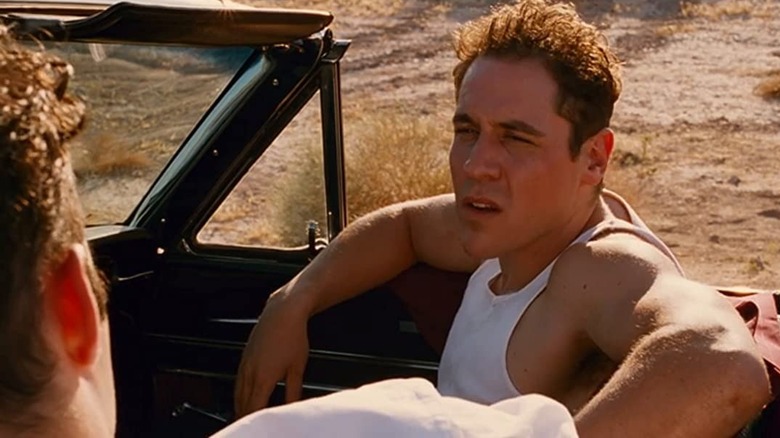
"The Hangover" is one of the weirdest mid-life crisis movies ever. Phil, Stu, Alan, and Doug are all looking forward to spending a weekend together away from their usual responsibilities, and they're forced to pay the consequences for their debauchery. This is a similar theme to the one presented in the 1996 classic independent comedy "Swingers." While "The Hangover" is pretty absurd with its ridiculous plot twists, "Swingers" is actually a pretty realistic look at dating, working as an actor, and life in Los Angeles. Both films are hilarious in their own ways, but "Swingers" tells a slightly more relatable story.
"Swingers" follows the aspiring comedian Mike Peters (Jon Favreau) and his best friend, the working actor Trent Walker (Vince Vaughn), as they attempt to "make it" in the social scene of the 1990s swing revival. Comedy films are generally products of the era they were released in. "The Hangover" includes references to social media and technology that ground it in the early 21st century, and "Swingers" now feels like a great throwback to 1990s swing culture. The attention to detail that Todd Phillips and "Swingers" director Doug Liman paid to fleshing out the environments made both films feel like excellent time capsules. Both "Swingers" and "The Hangover" feature actors with such great chemistry that it feels like they're best friends in real life. This was actually the case with "Swingers," where Favreau met Vaughn on the set of "Rudy" and based the screenplay on his real experiences.
Wedding Crashers (2005)
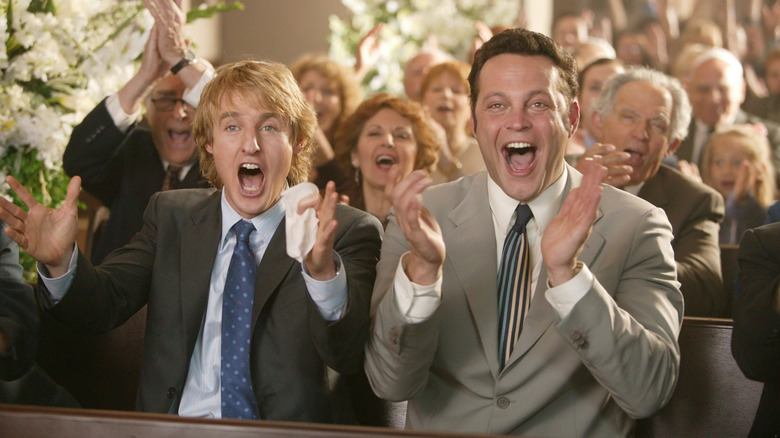
"The Hangover" looks at what can happen when irresponsible men get in over their heads. Phil, Stu, Alan, and Doug weren't necessarily looking to go on a wild road trip adventure, but a night of drinking gone awry comes back to bite them. This is a common setup in comedy films, but few are able to keep raising the stakes throughout. However, "Wedding Crashers" is one of the standout studio comedies of the early 21st century. Like "The Hangover," "Wedding Crashers" took the audience off guard with its surprising gags, cameos, and sincerity.
Although Owen Wilson and Vince Vaughn have starred in several films together, "Wedding Crashers" is the strongest of their collaborations. The film follows two bachelors, John (Wilson) and Jeremy (Vaughn), who attend various wedding ceremonies in order to seduce women. While they're not looking to form any long-term relationships, the pair get in over their heads when they start romancing Claire (Rachel McAdams) and Gloria (Isla Fisher), the daughters of the U.S. Secretary of the Treasury William Cleary (Christopher Walken). Many of the most amusing moments in "The Hangover" are when the gang has to lie to cover up their misadventures. It's pretty hard for John and Jeremy to lie about their military service when they're talking to an actual veteran like Cleary. Both films show how resentment can grow between lifelong pals. Although John begins to fall in love with Claire, Jeremy wants to get as far away from Gloria as possible.
Superbad (2007)
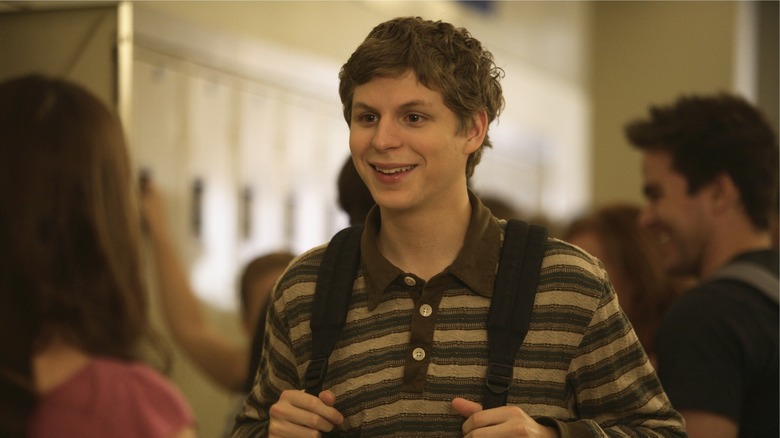
If "The Hangover" is about middle-aged men who get into childish antics, then "Superbad" is about teenagers who get saddled with adult responsibilities. If you ever thought that you got into trouble in high school, it's nothing compared to the shenanigans that Evan (Michael Cera), Seth (Jonah Hill), and Fogell (Christopher Mintz-Plasse) get into in "Superbad." "Superbad" is a quintessential merging of two different subgenres of comedy; it has all the ridiculous gross-out gags of "The Hangover," but the sincerity within the central relationship that feels closer to the films of John Hughes.
"Superbad" follows a group of teenage boys as they attempt to get into parties right before they leave for college. Like "The Hangover," the story revolves around characters who are trying to make the most of the time they have left together. Evan and Seth fear that they have missed out on the opportunities that they should have had in high school. The film gets more serious when Seth realizes that he and Evan will not be attending the same college. It's actually a very heartfelt examination of the struggles that come with growing up since Seth and Evans' final farewell to each other at the end of the film is very moving. Although Todd Phillips and "The Hangover" have been criticized for the depiction of female characters, "Superbad" does a great job promoting its female co-stars. Emma Stone gives one of her breakout performances as Jules, the girl who wins Seth's heart.
Step Brothers (2008)
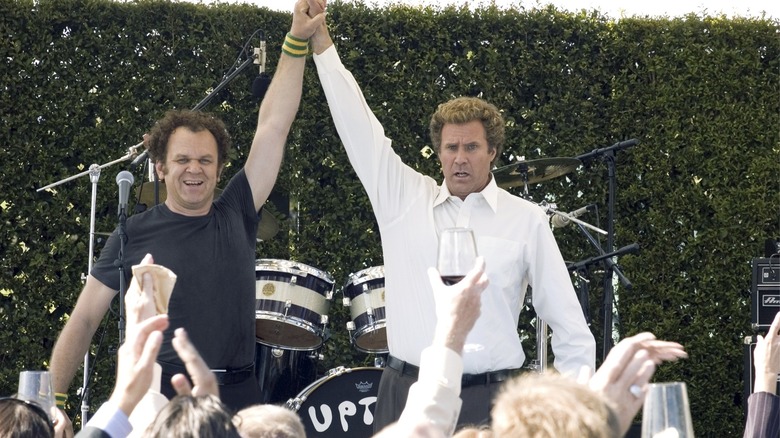
"The Hangover" gleefully lets men act like absolute children. There's something to respect about films that don't try to hide how immature they are, and "Step Brothers" is definitely one of them. Adam McKay's uproarious 2008 comedy looks at middle-aged men who are still in an adolescent phase. Brennan (Will Ferrell) and Dale (John C. Reilly) are forced to live together after their parents decide to get married. Brennan is fiercely loyal to his mother, Nancy (Mary Steenburgen), and Dale lives in fear of the wrath of his father, Dr. Robert Doback (Richard Jenkins). Neither of them is prepared to be "stepbrothers."
"The Hangover" features some incredible feats of physical comedy, but "Step Brothers" rivals it thanks to Ferrell and Reillys' commitment. Both films have a very dark sense of humor. At one point, Brennan tries to bury Dale alive, and Dale kicks Brennan off of a boat. It's hilarious to watch these two "man-children" bicker and argue, but the film really kicks into another gear when they realize how much they have in common. When their parents force them to get jobs, Brennan and Dale have to team up to silence their doubters and stand up to bullies. Both "The Hangover" and "Step Brothers" make no apologies for their characters. Brennan and Dale are absolute monsters, but they're hardly the worst that society has to offer. It's particularly rewarding to see them get revenge on Brennan's abusive brother, Derek (Adam Scott).
Due Date (2010)
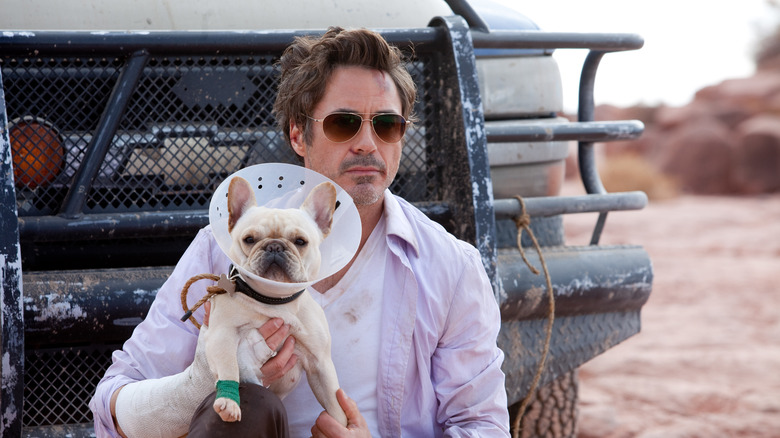
Although Todd Phillips would ultimately head into more dramatic territory with "War Dogs" and "Joker," he still made one last great comedy with 2010's "Due Date." While the sequels to "The Hangover" felt like they were repeating many of the same jokes, "Due Date" actually used "The Hangover" formula and took it in a new direction. It's a slightly more heartwarming story than "The Hangover," but "Due Date's" sincerity doesn't come at a cost to its comedy. The film pits two polar opposites against each other and forces them to team up in a very tumultuous road trip misadventure.
The premise is pretty similar, as anything that can go wrong does go wrong. Awaiting the birth of his child, architect Peter Highman (Robert Downey Jr.) gets on a flight from Atlanta to Los Angeles. After he gets annoyed with the eccentric passenger Ethan Tremblay (Zach Galifianakis), Peter finds himself kicked off the flight. Phillips understands that stakes are essential to making a good comedy. In "The Hangover," Doug is trying to get back in time for his wedding, and in "Due Date" Peter wants to witness his child's birth. Making the characters even more stressed helps make the scenarios funnier. Galifianakis doesn't just emulate his performance as Alan. Ethan is shy and oddly sensitive, and his strange truisms about life are actually quite endearing. The conversations he shares with Peter about their fathers give the film some genuine emotion.
Ted (2012)
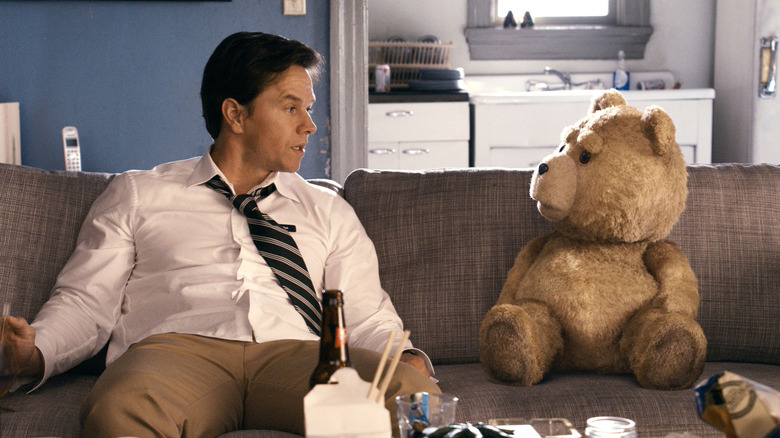
In terms of raunchy comedy "auteurs" of the 21st century, Todd Phillips' closest rival is Seth McFarlane, who changed the comedic landscape forever with his adult cartoons "Family Guy," "The Cleveland Show," and "American Dad!" When McFarlane finally made the transition to directing feature films, he used the concept of a children's story and took it in an R-Rated direction. "Ted" is about a young boy whose teddy bear comes to life. When both John (Mark Wahlberg) and Ted (McFarlane) grow up, they find themselves at an impasse where they might have to part ways.
"The Hangover" celebrates "bromance," and "Ted" looks at how childhood friendships evolve. John and Ted learn that they've gotten to know each other a little bit too well. John doesn't want to keep cleaning up Ted's messes, he wants to move on with his life. Of course, seeing an adorable teddy bear curse, smoke, and seduce women is inherently funny. However, McFarlane is able to give the film legitimate stakes when John considers leaving Ted behind so that he can be more committed to his girlfriend, Lori Collins (Mila Kunis). Both films were able to take the audience off guard with the development of crime storylines. The guys in "The Hangover" get into trouble with the mafia when they run into the Chinese gangster Mr. Chow (Ken Jeong). There's a humorous storyline in "Ted" when the obsessive stalker Donny (Giovanni Ribisi) tries to kidnap Ted. Ribisi's serious demeanor makes the character even funnier.
Pain & Gain (2013)
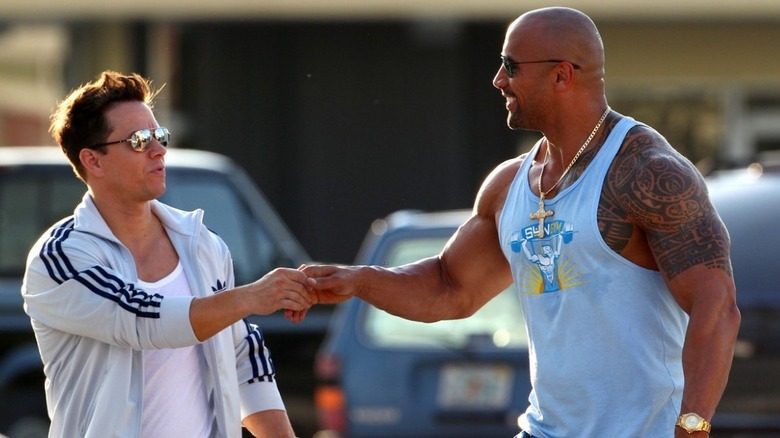
One of the reasons that "The Hangover" is so funny is that it keeps doubling down on its own absurdity. While it certainly surpasses believability, the film is grounded in just enough reality to make it not feel like a cartoon. If "Pain & Gain" was based on an original screenplay, it would be seen as completely unbelievable. However, Michael Bay's 2013 satire is actually based on the true story of one of the craziest crimes in modern American history.
Bay is a filmmaker who has often been criticized for his immaturity, but with "Pain & Gain" he satirizes it. Daniel Lugo (Mark Wahlberg) is a workout obsessive who is obsessed with a materialistic desire for wealth, success, and admiration. Lugo's insecurity about his own masculinity drives him to plan a kidnapping of the wealthy man Victor Kershaw (Tony Shaloub). Similar to the characters in "The Hangover," Lugo has absolutely no idea what he's doing. After recruiting Paul Doyle (Dwayne Johnson) and Noel Doorbal (Anthony Mackie) to join his heist crew, Lugo finds himself caught up in a criminal conspiracy. Both films are gleeful in their shocking moments. While "The Hangover" has a more light-hearted tone, "Pain & Gain" features some truly morbid death sequences.
This Is The End (2013)
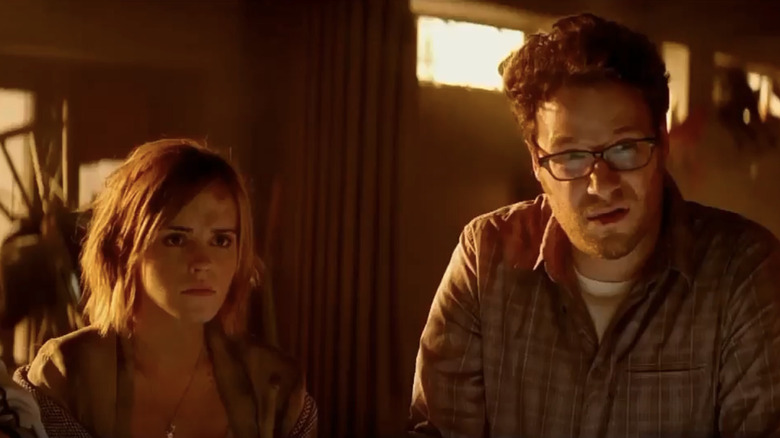
There's a gleeful immaturity to the characters in "The Hangover." It's very amusing to see the version of themselves that Phil, Stu, Doug, and Alan present in public, and then see what they're like when they have no restrictions. This is a humorous device that also works in favor of "This Is The End." The 2013 comedy stars Seth Rogen, Jonah Hill, Jay Baruchel, James Franco, Danny McBride, Craig Robinson, and Michael Cera as exaggerated versions of themselves.
"The Hangover" may have kicked off with some wild shenanigans, but the stakes in "This Is The End" are literally apocalyptic. The film follows a group of celebrities during a cataclysmic weather event that threatens the globe. It's hilarious to see how out of touch these stars are with reality, only thinking of materialistic urges when facing life-and-death scenarios. It's also funny to see celebrities poke fun at themselves by acting like complete imbeciles. "The Hangover" features some surprising moments of violence that take the story in a darkly comedic direction. "This Is The End" has a similarly morbid sense of humor, as several famous faces get annihilated during the disaster.
Zola (2021)
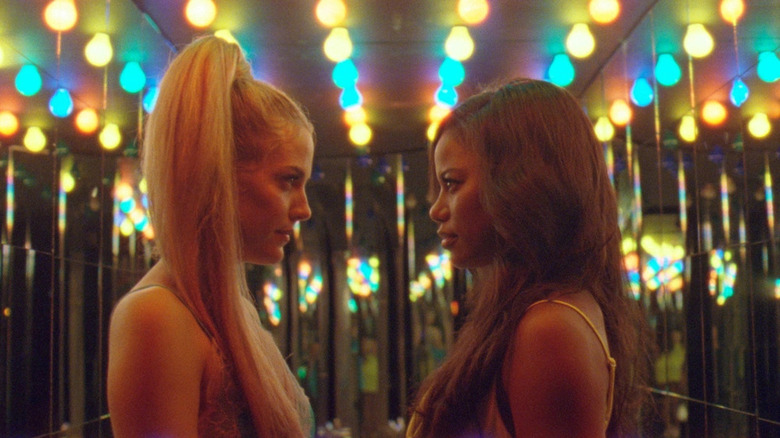
"The Hangover" feels like it was based on a wild story that emerged on social media. While Twitter has its fair share of exaggerated stories, the infamous 2015 thread by the stripper Aziah King (also known as Zola) was so ridiculous that it went viral and inspired a "Rolling Stone" article. The thread and article inspired the feature film adaptation "Zola," which debuted at the Sundance Film Festival in 2020 and hits theaters in the summer of 2021.
The film follows the stripper Zola (Taylour Paige) as she goes on a raunchy road trip with her fellow performer Stefani (Riley Keough) and her boyfriend Derrek (Nicholas Braun). Unfortunately, Stefani's love life gets a little more complicated, and Zola finds herself in the middle of a crime ring. If you thought that "The Hangover" gang's activities were embarrassing, wait until you see the shenanigans that Stefani drags Zola into. First-time director Janicza Bravo does a great job of making the story shocking until the very end.
Read this next: The 10 Best Comedies Of The Last 10 Years
The post 12 Movies Like The Hangover That Are Absolutely Hilarious appeared first on /Film.
Over 250 US News Websites Deliver Malware via Supply Chain Attack
Hundreds of regional and national news websites in the United States are delivering malware as a result of a supply chain attack involving one of their service providers.
Hackers Using Rogue Versions of KeePass and SolarWinds Software to Distribute RomCom RAT
A Night Out With The Pulp Fiction Crew Led To Quentin Tarantino Pitching Kill Bill
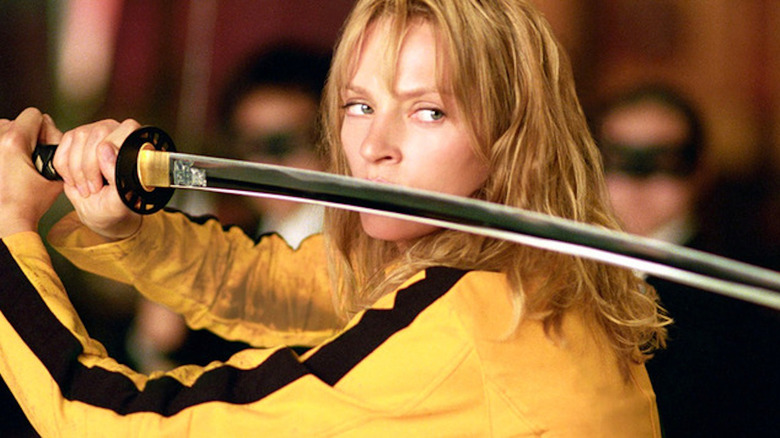
It's hard to believe, but there was a shockingly extended stretch of time when Quentin Tarantino was scrambling creatively.
His dry spell set in after the release of 1997's "Jackie Brown." Though his adaptation of Elmore Leonard's "Rum Punch" is now considered one of his finest efforts, the film was a commercial and critical comedown after the medium-altering sensation of "Pulp Fiction." It received one Academy Award nomination (Best Supporting Actor for Robert Forster) and faded from view.
Had the video-store wunderkind run out of tricks? Was he nothing more than the sum of his pop culture references and penchant for extreme, grindhouse violence?
The truth is that Tarantino knew what he wanted to do next. He just needed to step back, recalibrate, and prepare himself for an arduous, physically audacious shoot, unlike anything he'd attempted in the past. He needed to acquire a new skill set so he could do right by his leading lady, Uma Thurman, who'd co-created the project that would catapult him into the thrilling next phase of his career.
The Masterpiece That Begat A Masterpiece
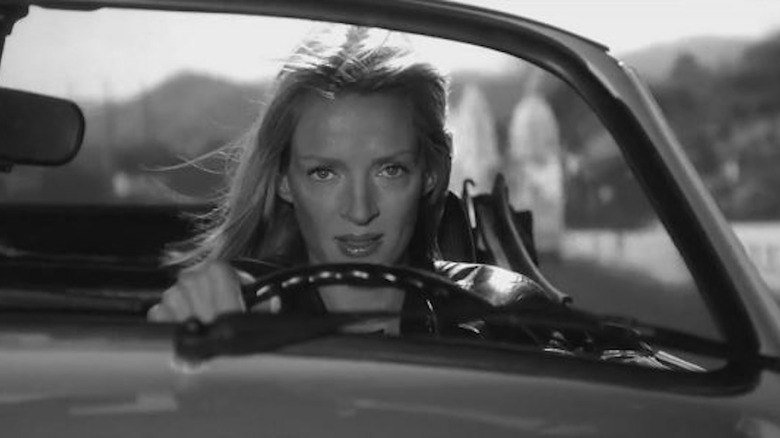
Sometimes, one brilliant turn inspires another. This was the case with the inception of "Kill Bill." The revenge epic that grew so unwieldy it had to be split into two volumes to protect Miramax's investment was born one wild night during the production of "Pulp Fiction." As Thurman told Time in 2003:
"'We were with people from the cast and crew of Pulp Fiction, just talking about revenge-genre filmmaking,' she says, 'batting ideas around.' In a matter of minutes she and Tarantino came up with a plot idea: a pregnant female assassin tries to go straight, gets viciously attacked at her wedding, loses her baby, slips into a coma, recovers and goes on a trail of revenge. Tarantino was so excited by the premise that he went home and wrote nine pages of the script in a multicolored felt-tip frenzy."
Then Tarantino's "Kill Bill" muse vanished. He lost touch with Thurman for a couple of years. When they finally reconnected, Thurman asked Tarantino if he still had the pages he'd filled in a fit of inspiration. He did, but there was no script.
On Thurman's birthday that year, he promised that she would have a completed screenplay "within weeks." A year and a half later, she, at last, received a draft of "Kill Bill."
Still Waiting On 'The Whole Bloody Affair'
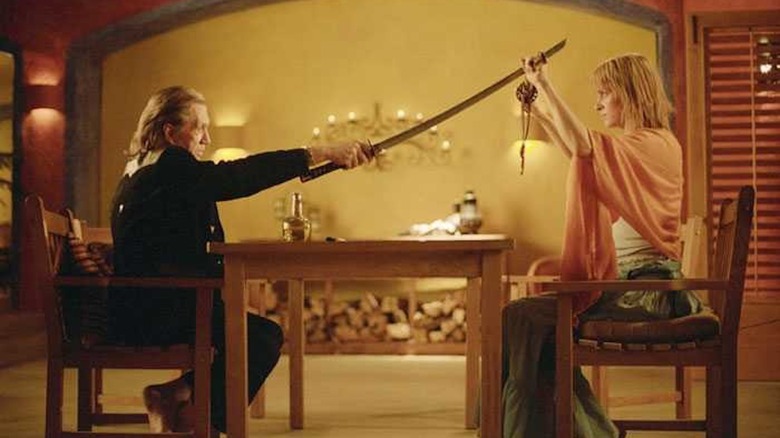
With Miramax's backing, Tarantino flung himself into pre-production on "Kill Bill," only to be forced to hit pause when Thurman became pregnant with her second child. The studio could've pressed him to replace Thurman, but he wouldn't hear of it. "Would Sergio Leone have replaced Eastwood in 'A Fistful of Dollars?' Would von Sternberg have replaced Dietrich in 'Morocco?' I knew how good she was going to be in this movie, so we waited."
Thank god, he did. Thurman's portrayal of Beatrix "The Bride" Kiddo resides in the pantheon of great action heroes. She dusts the best work of Wayne, Eastwood, and McQueen as a straight-up assassin who, halfway through her revenge journey, discovers her daughter is still alive. But while halving the film might've been a wise commercial decision for Miramax, it did Thurman's performance a profound disservice. "Kill Bill Volume 1" is, in the words of Sonny Chiba's Hattori Hanzo, a forest of revenge; The Bride might have her to-do list, but her bloody errand is devoid of gravity until we learn she could be reunited with her believed-dead child.
Had "Kill Bill" been released as one movie, I think Thurman would've won the Oscar for Best Actress in a walk. Hopefully, Tarantino will one day be able to release the film in its "The Whole Bloody Affair" form, at which point the filmmaker's masterpiece, and the muse who inspired it, will glory in their achievement.
Read this next: The Coen Brothers Movies Ranked Worst To Best
The post A Night Out With The Pulp Fiction Crew Led To Quentin Tarantino Pitching Kill Bill appeared first on /Film.

